Du har väl inte missat att Idéburen Utveckling driver ett Erasmus+ Small-scale Partnership-projekt tillsammans med folkbildningsorganisationen Dock Europe i Hamburg?!
I slutet av februari var det dags för kick off-träff med partnerorganisationerna tillsammans med ett gäng ungdomar och unga vuxna från Malmö och Kirseberg. Häng med på resan i denna reserapport för att få veta mer om vilka som deltar i projektet, vad det handlar om och vilka vi fick chansen att träffa på vår resa i Hamburg!
OBS – den här reserapporten är i engelska eftersom det är ett internationellt projekt där projektspråket är engelska.
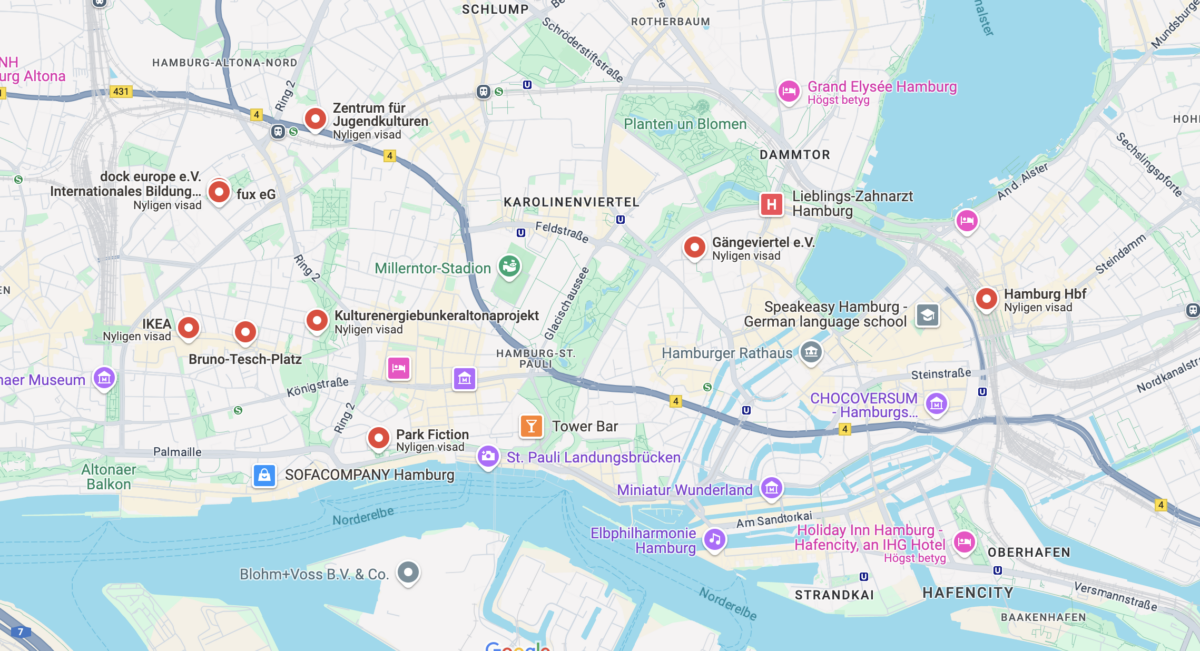
About the Shared City Shared Future Project
This Erasmus+ Small Partnerships project is an exchange and learning programme between Kirseberg in Malmö and Altona in Hamburg and is led by non-formal education platforms Idéburen Utveckling and dock europe e.V. Both organisations work within hands-on processes of civic self-organisation in response to pressing local issues and resident-led city development with an emphasis on young people’s leadership. The programme invites young leaders, youth workers and young activists to exchange and share their working practices, ideas, tips and tricks on how to build movements, create events, co-produce physical common spaces, build one’s democratic effectiveness and support others to feel included. It consists of visits to Malmö and Hamburg with workshops, case study visits and social networking opportunities, as well as a series of online sessions to share methodologies and learnings rooted in the respective local processes.
The kick-off
To kick off the programme, a small group of staff from Idéburen Utveckling and young leaders from Backa Kåken and Bulltofta IF in Kirseberg travelled down to Hamburg to meet their counterparts in Altona. We wanted to get to know each other, find out why and how we do things in our respective home places and plan together what the rest of the programme will look like in more detail. Here are some of the questions we brought in our bags:
- Why do you organise? What matters to you? Vad brinner du för? Wofür brennst du?
- What was your favourite event last year? Ever? And why?
- What are the formats, tips and tricks to get different people together? What makes you want to be there?
- How do you organise between yourselves? What’s important?
- How do you keep going?
We had a fantastic time together and learned so much! Here is a little summary of what we did and found out.
February 28 05:25 AM
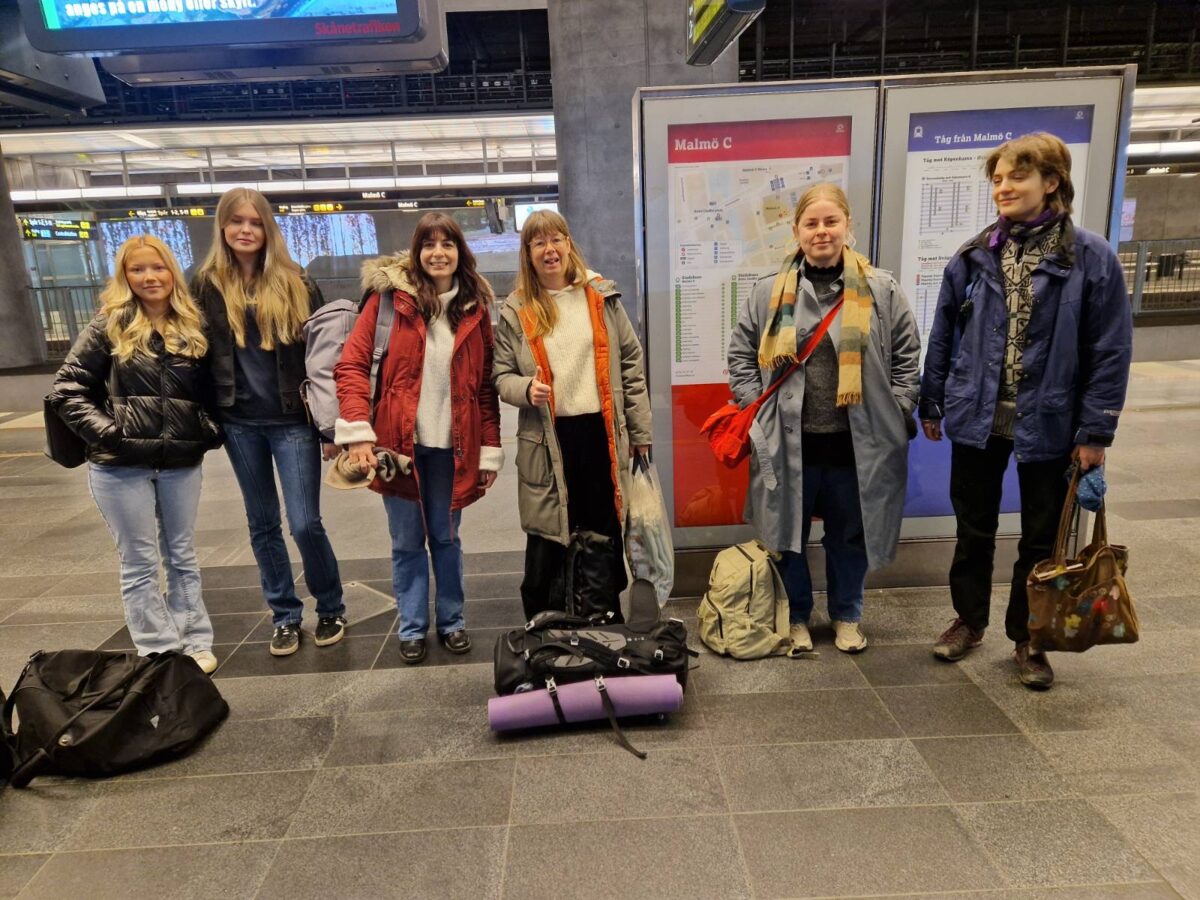

At Malmö Central Station — very early on a Friday morning — nine people gathered to board the train together toward Copenhagen and onward to Hamburg. Joining the trip were three people from Idéburen Utveckling, two from Bulltofta IF, three from Backa Kåken, and a PhD student from Malmö University who is following Backa Kåken.
(Om du vill öppna någon av bilderna i inlägget för att se i större format kan du högerklicka och välja öppna i ny flik!)
11:30 AM
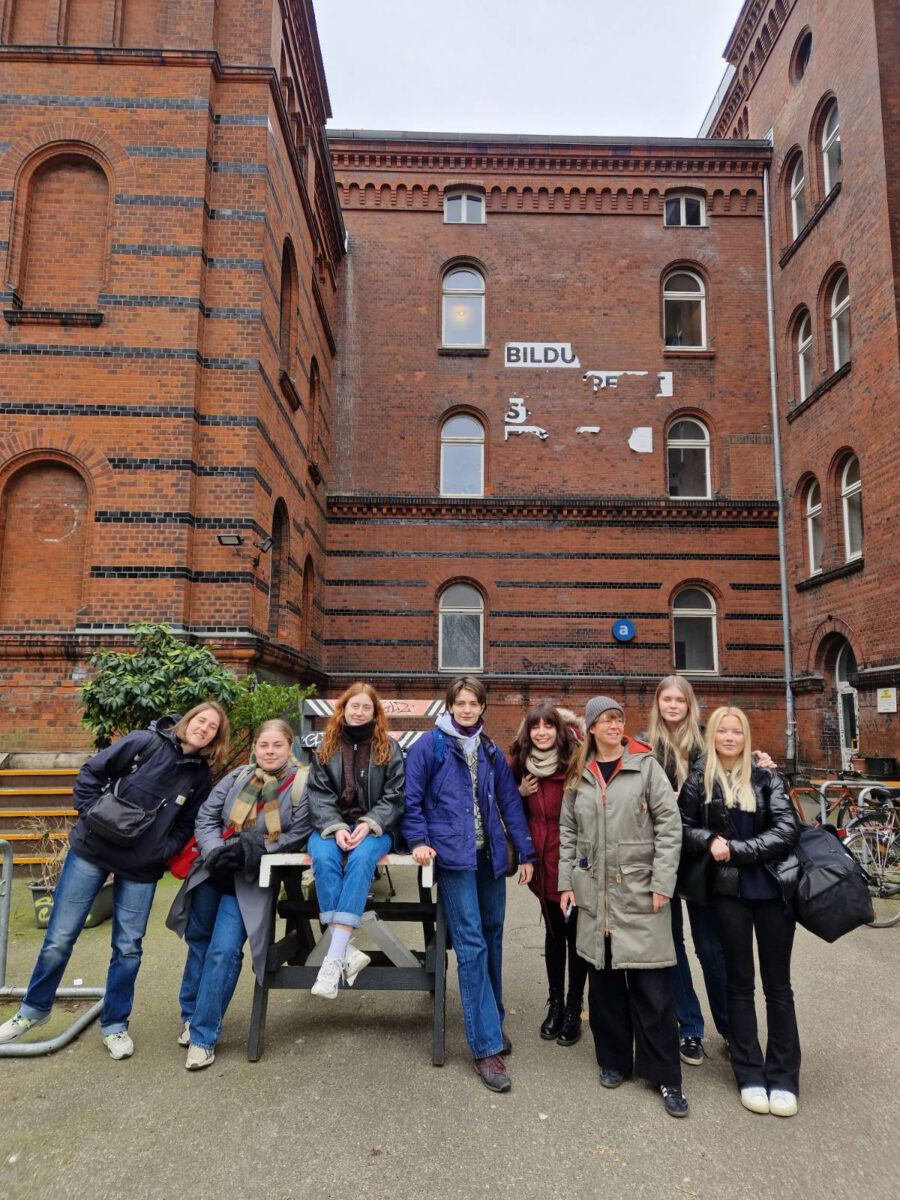
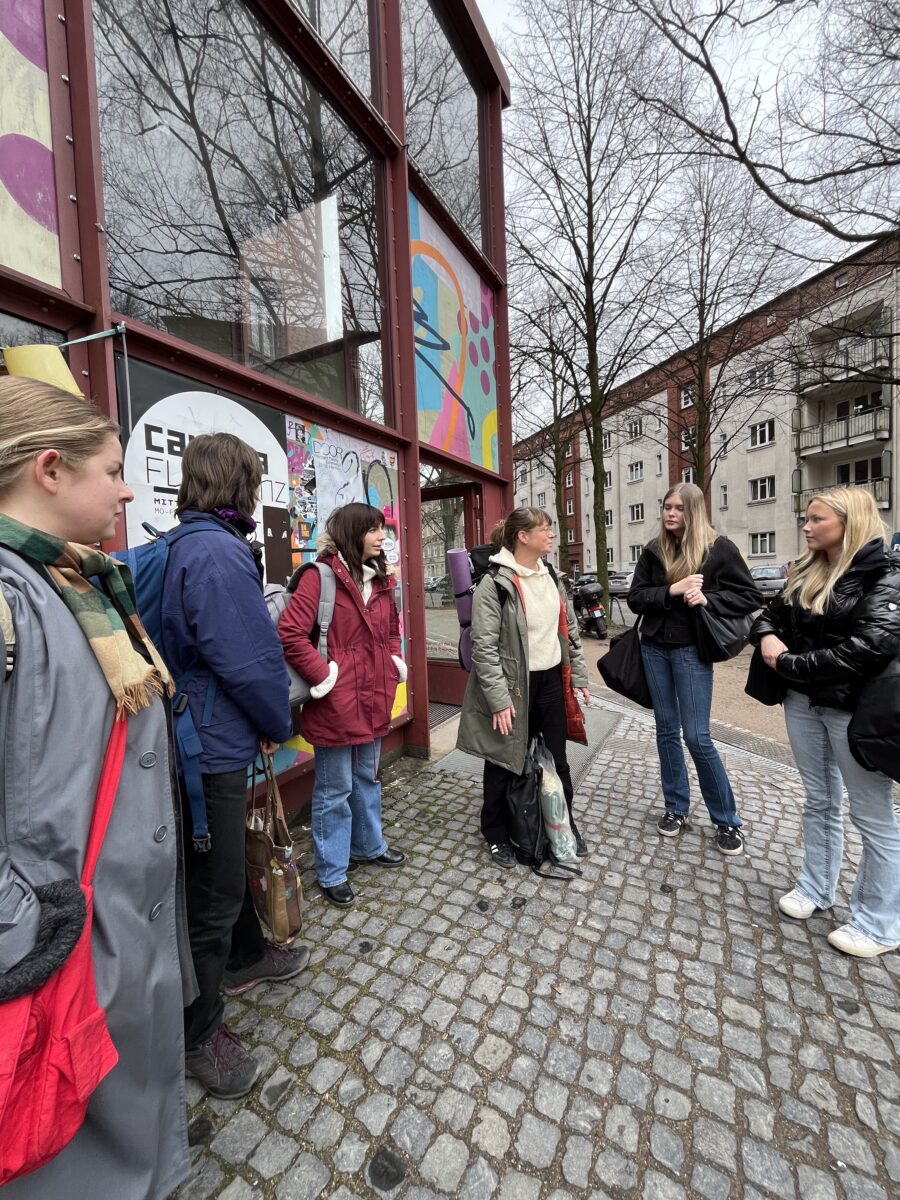
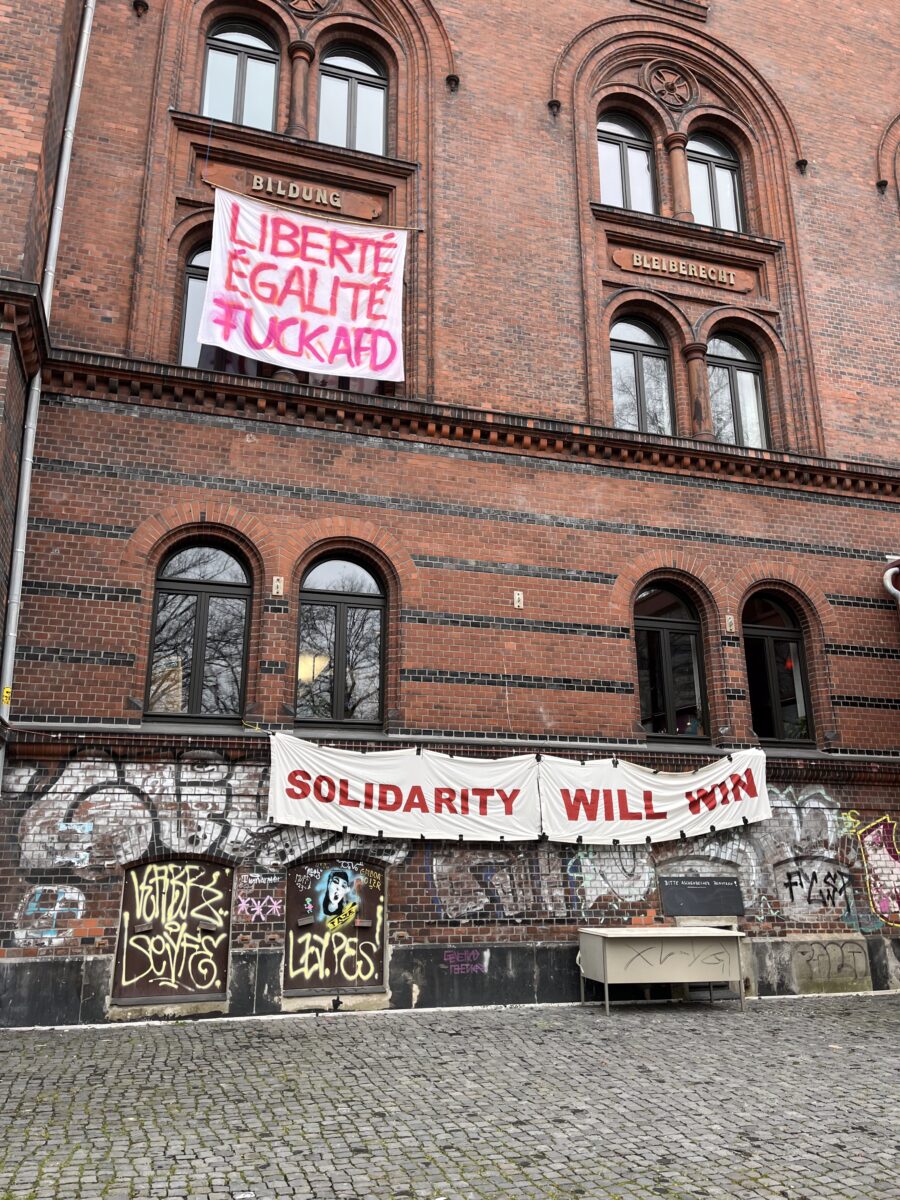
After a very early start and at least some sleep on the train, the Malmö group arrived in Hamburg. We made our way to Altona, where we met up with Petra Barz and Suna Voss from dock europe, the non-profit organisation that Petra co-founded twenty years ago. Dock europe works with everything from political education, seminars, study visits, process support, mediation and much more. Today, the organisation is based in fux eG, a cooperative that has developed a former military barracks in the Altona district.
Together with Petra and Suna, we gathered at fux & ganz – fux’s very own canteen – for a delicious lunch before checking into dock europe’s hostel. Oh yes, dock europe has a hostel that is constantly booked out with young people, youth workers, activists, and community groups that come to dock and use their facilities to work, plan, and be together. At Backa Kåken, we take great inspiration both from the hostel and the canteen idea as a way to create places that bring new people into a commonly owned building and create inclusive and affordable places to meet, chat and share.
More about fux eG
fux eG is a cooperative that owns and operates the former Viktoria barracks as a space for culture, education, and production. The building was constructed in the late 19th century and originally served as a Prussian barracks. It has also been used as a police station.
In 2015, the cooperative purchased the buildings (10,000 sqm), following many years of ‘Right to the City’ activism that brought together many different groups in Hamburg asking for their right as citizens to shape the city they live in and for access to affordable living, working and meeting space and education, culture and a right to stay for all. This movement built on experiences in many different pockets of activism in Hamburg since the 70s really, like, for example, the Hafenstrasse occupation, alternative (and radical) planning processes like Park Fiction and Planbude and more recent initiatives like the Gängeviertel initiative, Mikropol and Hallo eV. We learned about these stories from a mural presented in the main entrance of the building that traces the ancestry of fux in imagery and was created by Christoph Schäfer, an artist embedded in many of these movements who we had the joy to meet in person on day 2! Fux was initiated by two organisations — Frappant, an artist collective previously based in a former shopping centre of the same name, and Lux & Konsorten, a network of small businesses and freelance workers aiming to combat the lack of affordable and accessible spaces in Altona. This merger also led to the name ”fux.”
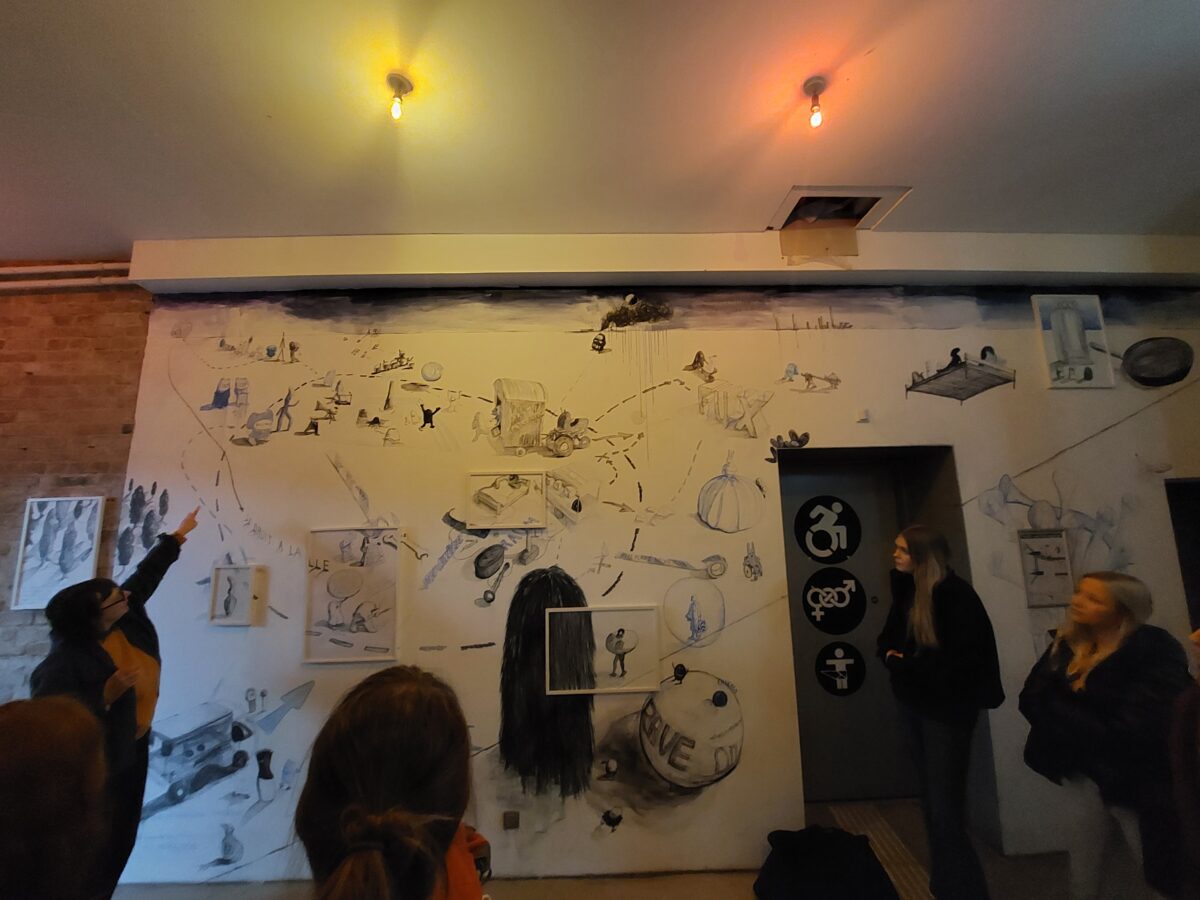
After years of renovations and extensive efforts to crowdfund and finance both the purchase and restoration, fux eG is now home to around 200 people working in various fields, including art, crafts, design, adult education, political organising, food, film, hairdressing, photography, and more. It also serves as a meeting place for the local community and a venue for cultural events, music, and activities. fux eG is fully self-managed and self-organised, with the building divided into ”quarters”, each of which is independently managed. Some of you might remember that Backa Kåken takes much inspiration from their model and fux representatives have been in Malmö to share their story.
1:30 PM
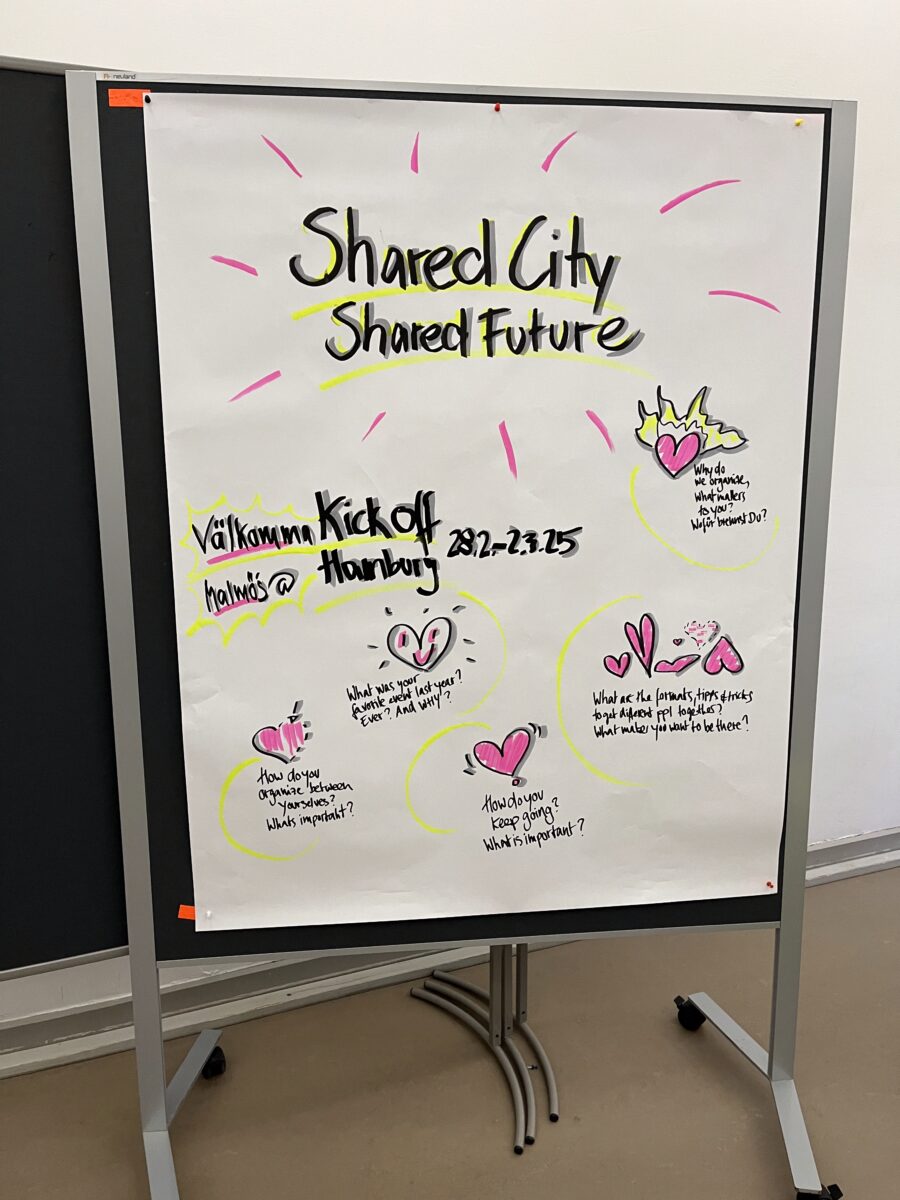


The group gathered in one of dock europe’s seminar rooms with Petra and Suna. We had the opportunity to get to know each other better and discuss our expectations for the project and the weekend in Hamburg. The group’s expectations included learning practical organising skills, how to navigate conflicts and challenges, and how to stay motivated. We did a fabulous check-in activity with mood monsters – many of us found ourselves at the intersection between a very tired or shy monster and one that was curious-looking or even ready to dance.
2:30 PM
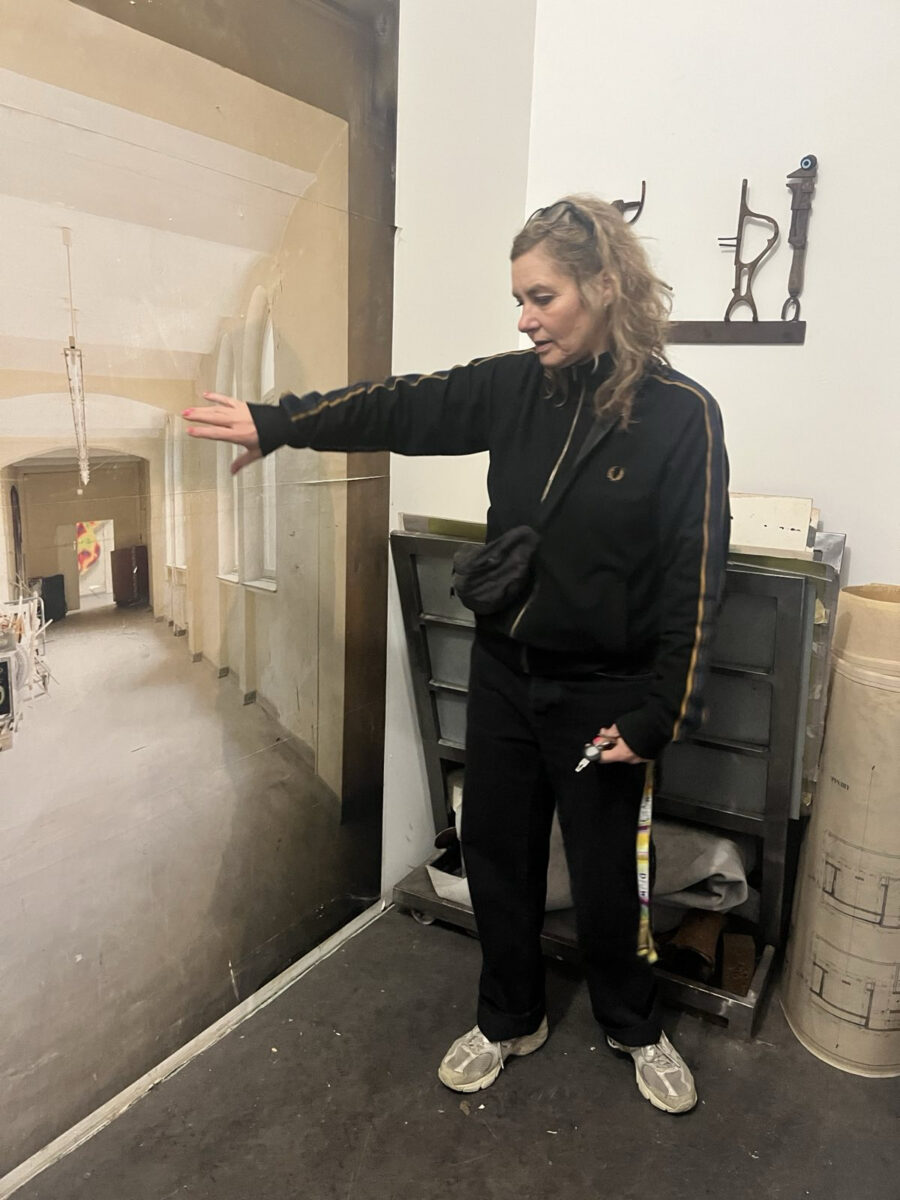
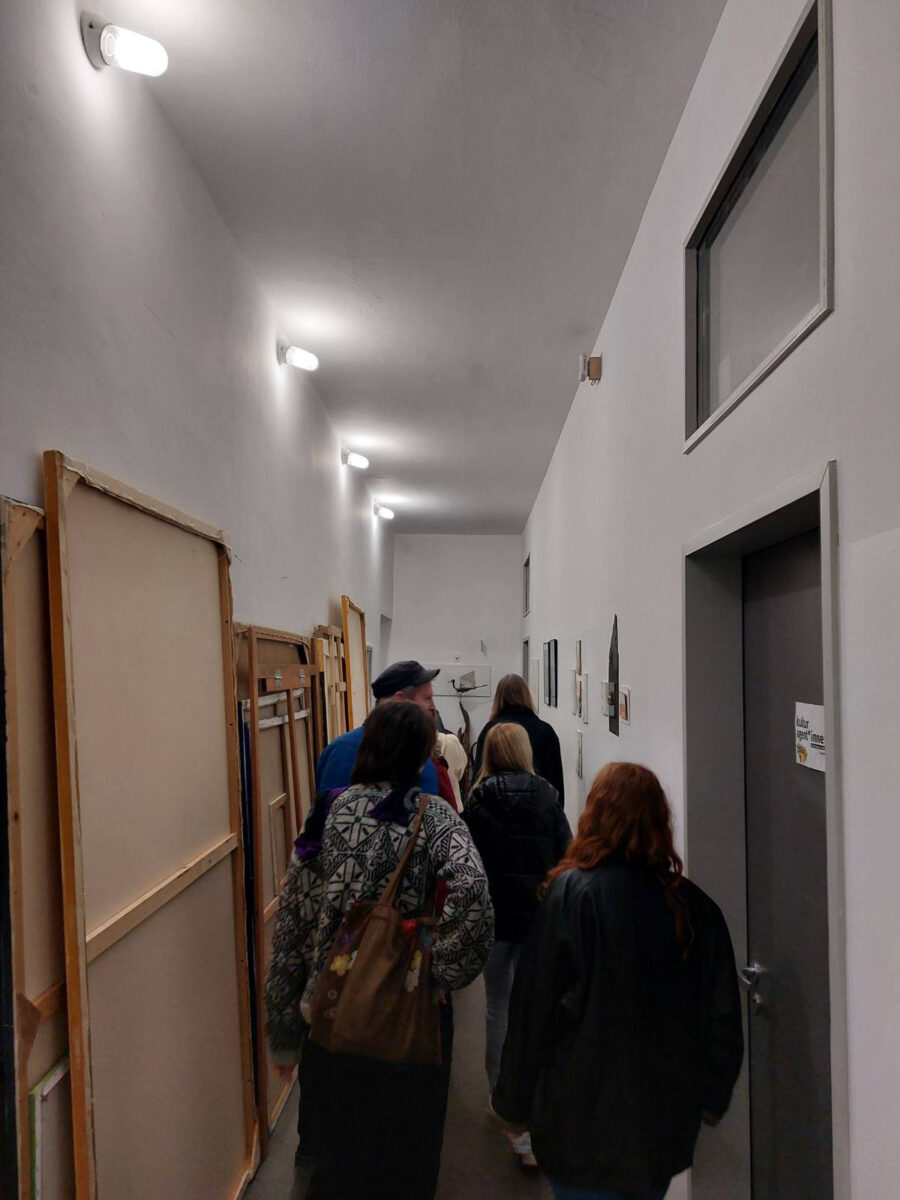

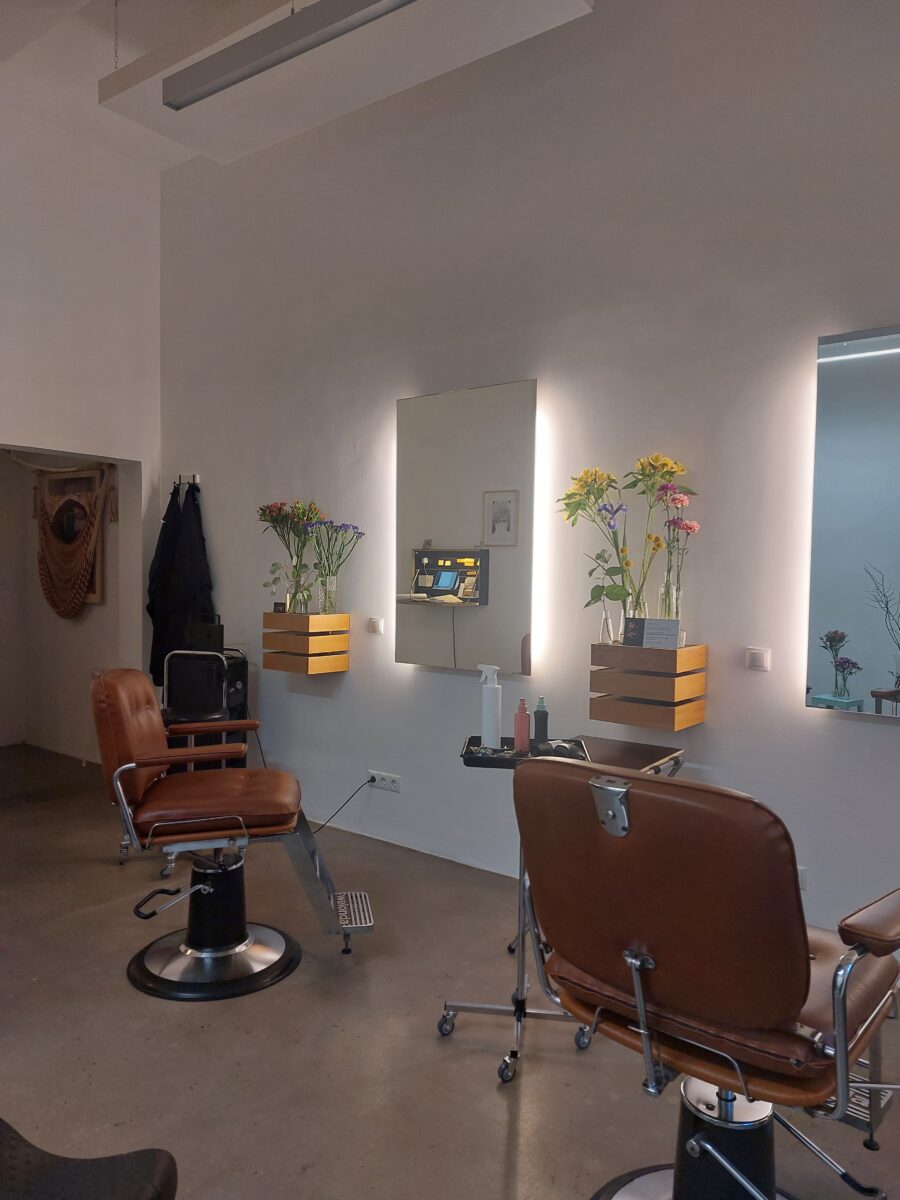
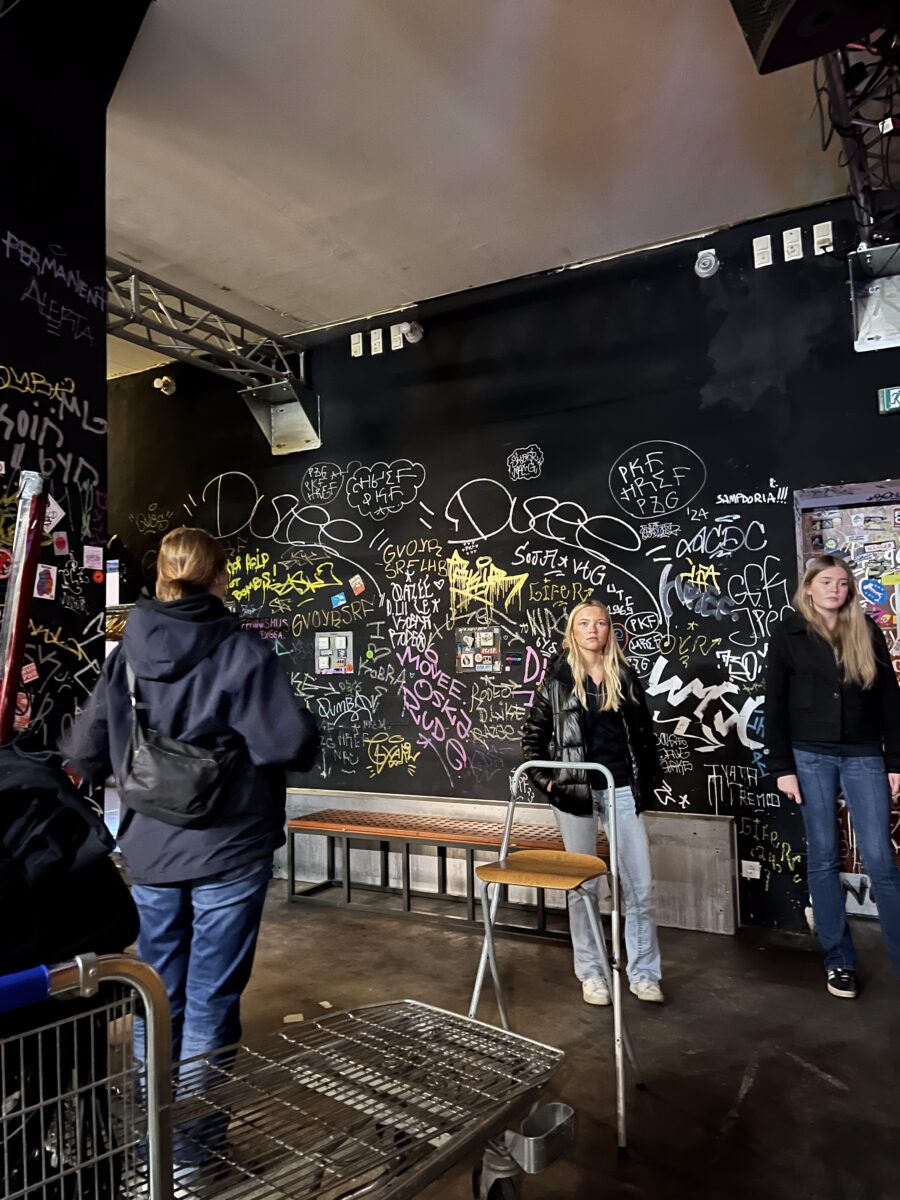

The group embarked on a tour of the barracks with Petra and Suna. We visited the Okapi quarter, home to several illustrators, as well as Frappant’s gallery and club (called Kachelraum, meaning ”The Tile Room”), the hairdresser Doreen, a textile artist, the smallest cinema in Hamburg fux Lichtspiele (where we met the Hamburger Youth Short Film Festival Mo & Friese, who were selecting films that day), the craft group Ghostbastlers, and Arca, an African cultural centre running the Fasiathek library, which is entirely dedicated to literature by Black authors and histories of African-German and other African diaspora. We weaved in and out of people’s spaces – always welcomed warmly – and slowly got a sense of the culture of fux, how it is organised, the varying levels of participation, the perks (and difficulties) of self-organisation and the synergy effects created through spontaneous meetings and shared spaces among so many people, businesses, and organisations. We got the sense that whilst the process of self-organising and management can be a lot of work, both emotional and administrative, the security of co-owning the space people work in and the exchange and collaboration in the house make up for difficulties manifold. Backa Kåken folks also picked up on the solidarity systems around rent pricing and both the complexity and the beauty of negotiating these together.
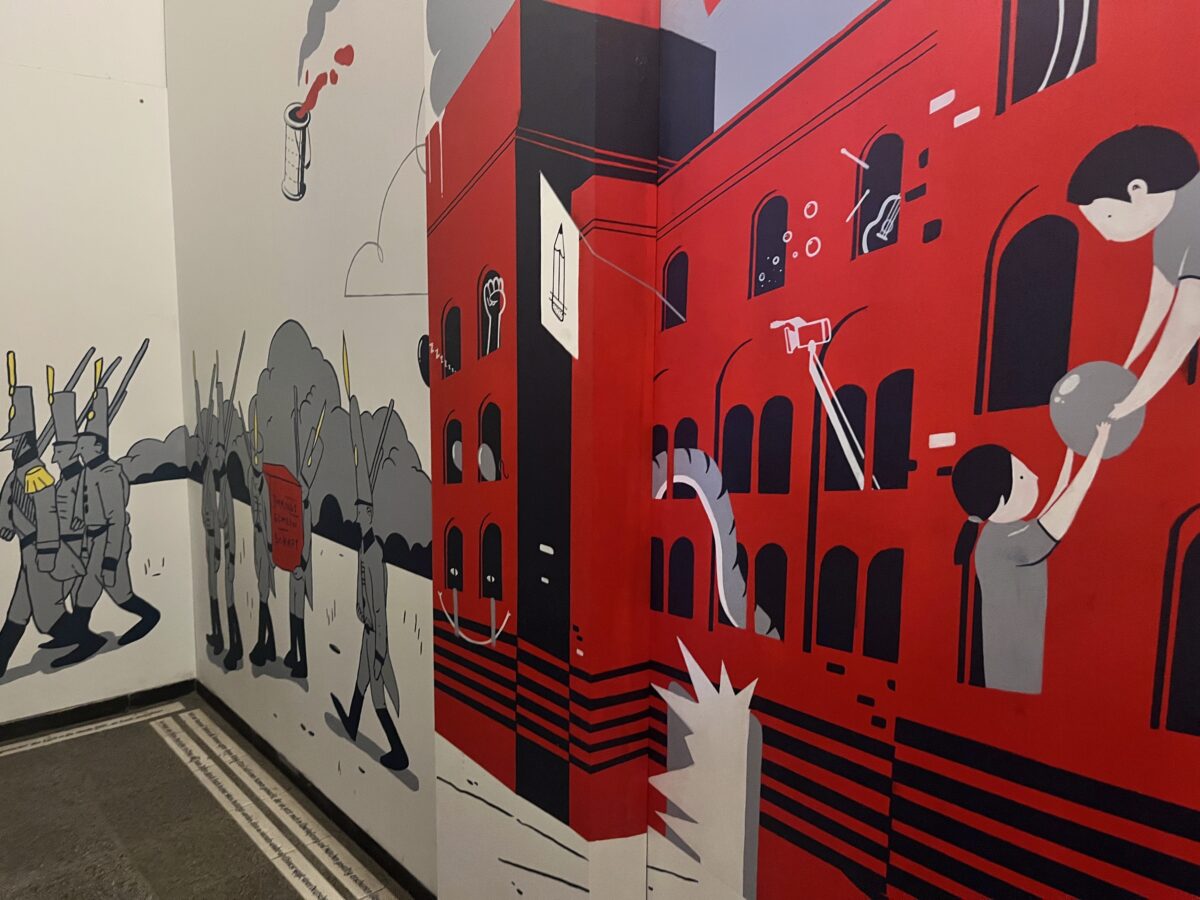
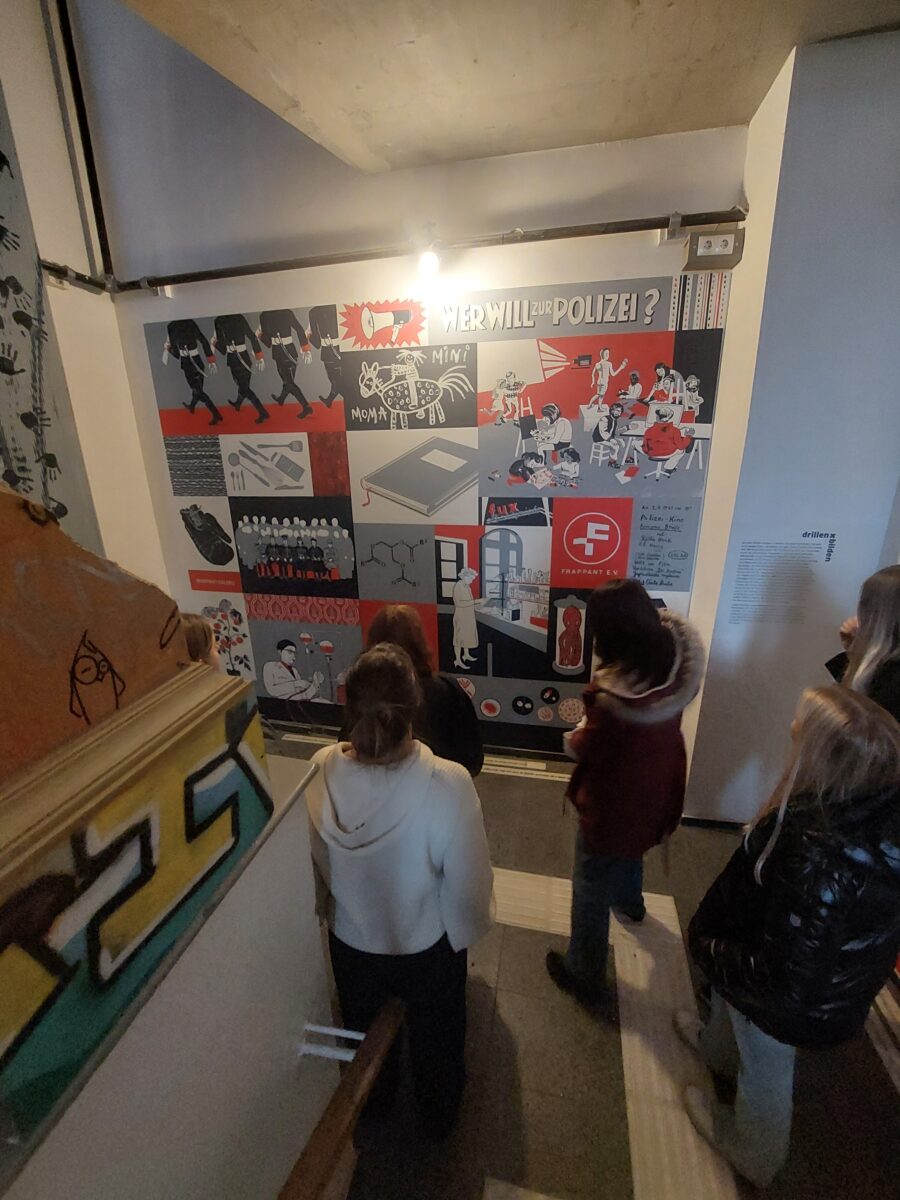
Suna shared with us how fux engages with the history of the building in murals that they commissioned from artists in the building.
5:30 PM
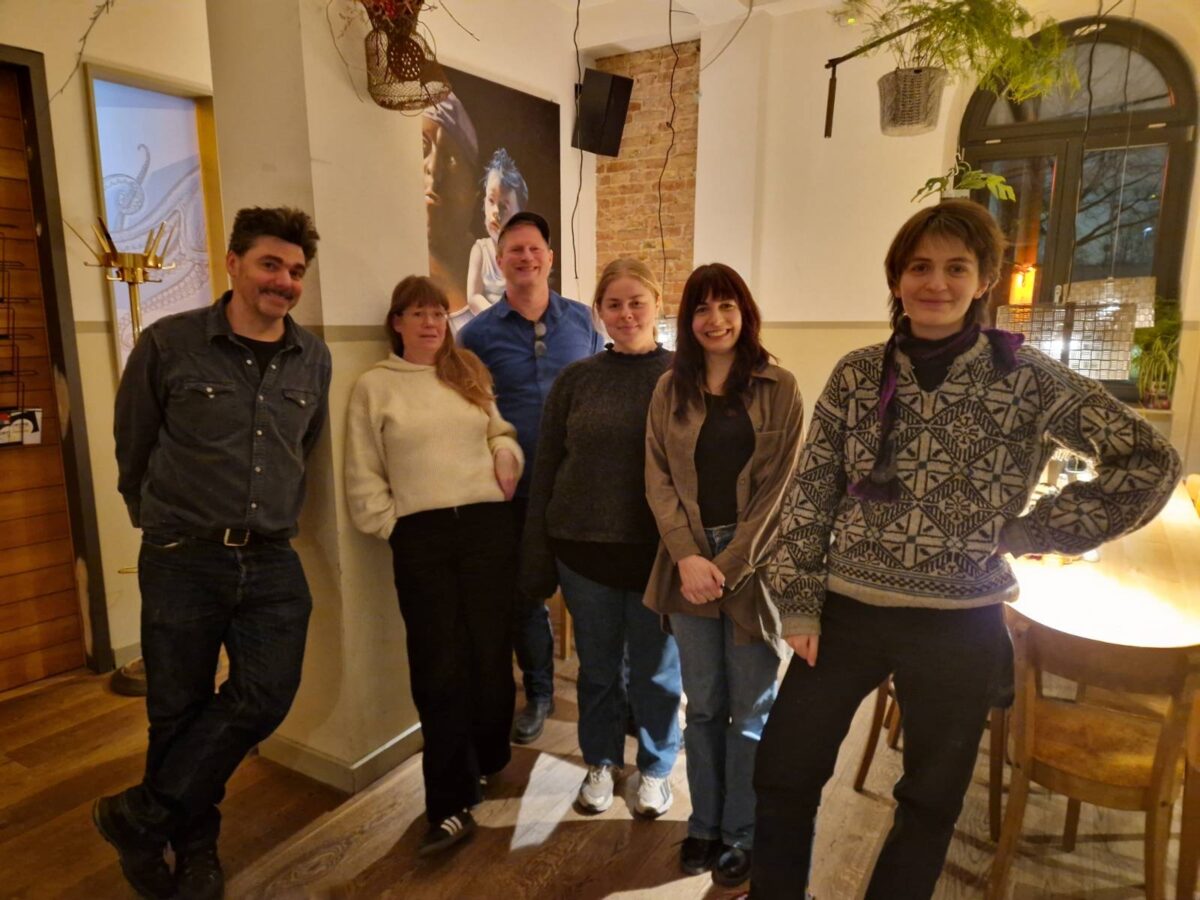
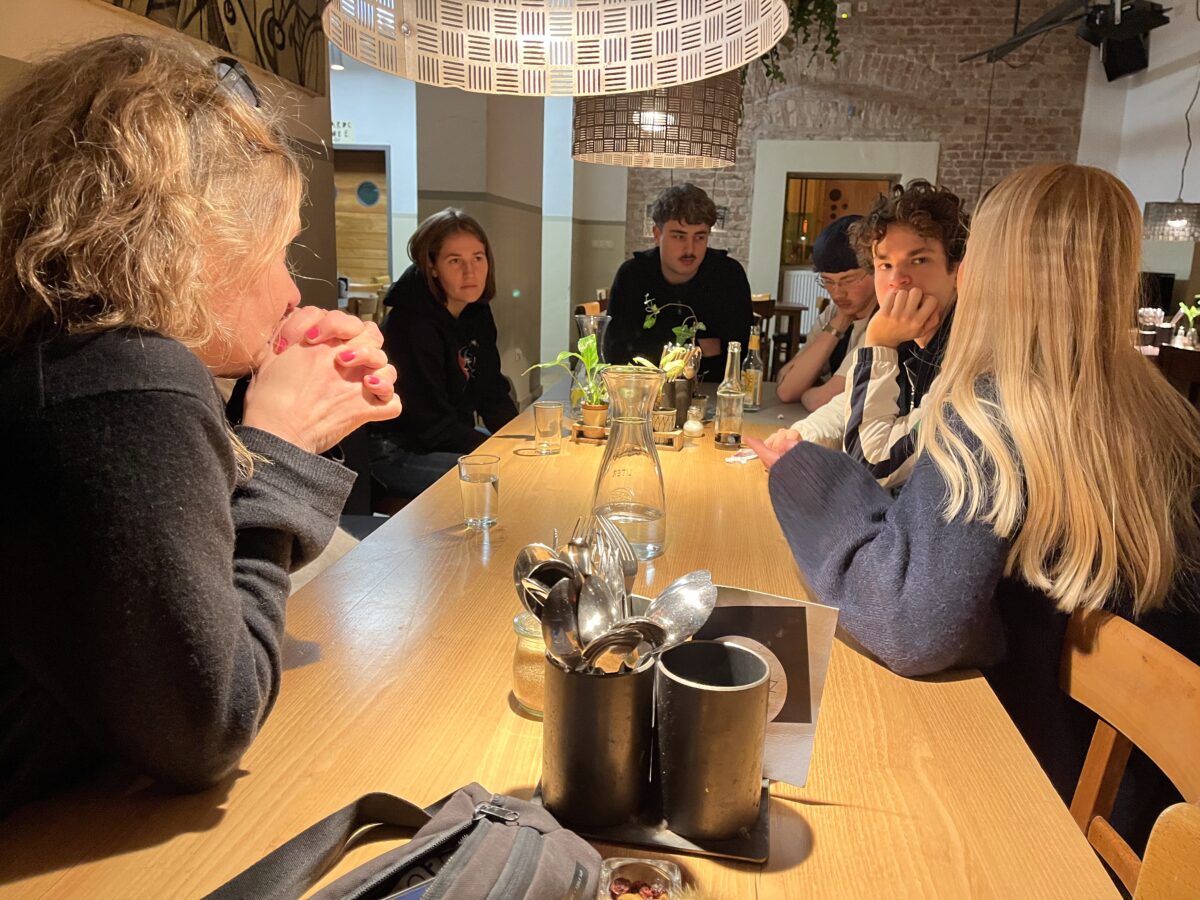
After a much-needed break following the tour, the group gathered at the cantina again, this time to choose between two different discussions:
- Backa Kåken sat down with Sacha Essayie, one of fux’s founders and project manager of renovation works, to talk about organisation, financing, negotiations, purchasing, rent-setting, and the practical aspects of their work.
- Bulltofta IF participated in a discussion with fux Populi, an initiative run by three young people from Altona and St. Pauli. Twice a month, they open the cantina at fux to host a community kitchen where people can eat and pay what they want. The goal is to create a space for people to meet without the need to consume. The conversation also touched on motivation, political engagement, and the differences between Swedish and German youth organisations. Fux Populi is one of the organisations that will be joining the rest of the programme.
The evening concluded with a group dinner at a restaurant in Altona’s new centre, where we learned more about the neighborhood and its transformations — more on that on day two!
March 1, 9:30 AM
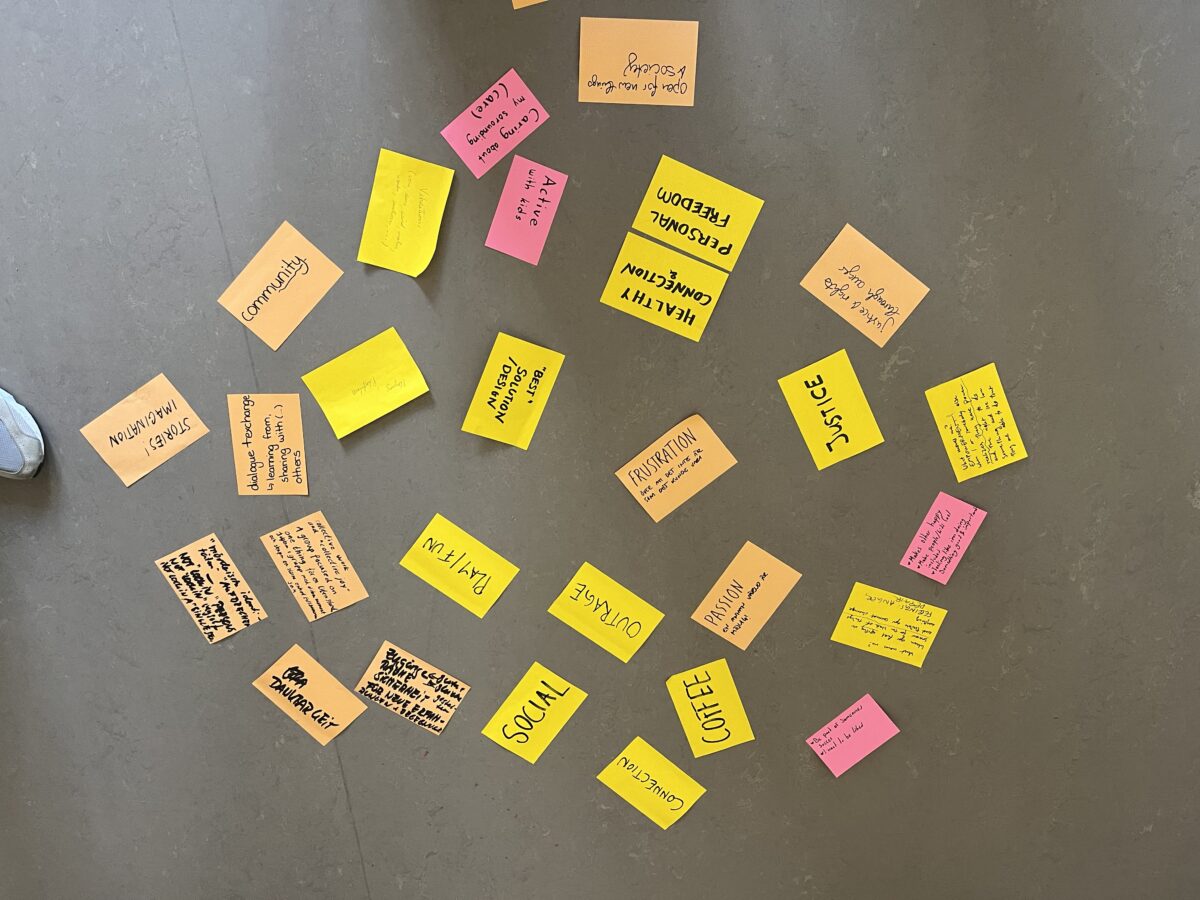
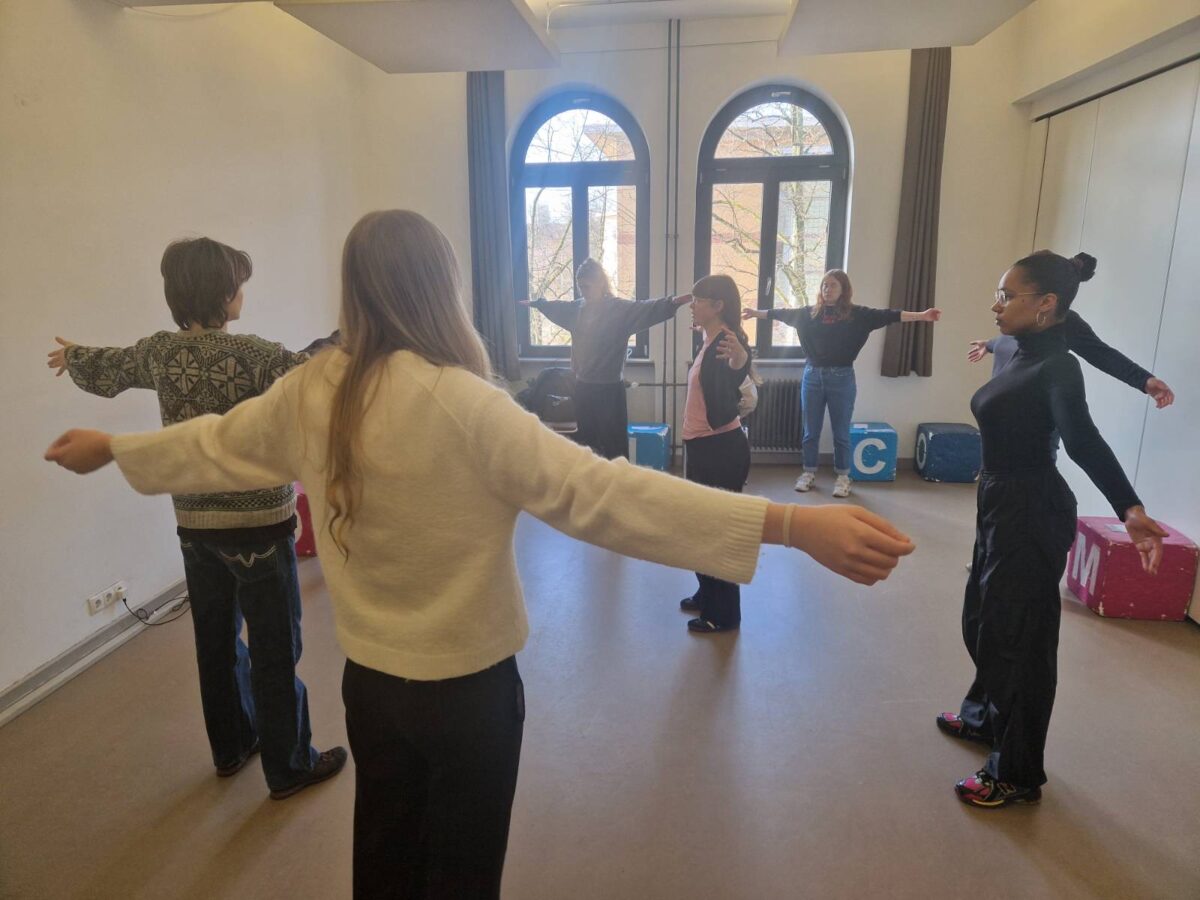
After breakfast at the hostel, day two kicked off with another workshop. This time, the Malmö group was joined by another member of the docks team, communication expert and young leader Mariamu as well as Jessica, a young participant in a dock programme. We started the day off with movement exercises and discussions around two key questions:
- ”What moves you?” – What motivates you? What do you hope for? Why do you do what you do?
- ”What do we move?” – What difference does your organisation make, and for whom?
Just like with docks on Day 1, we used our bodies to tap into emotions and maybe even access our more physical knowledge and wisdom. Social movements are not called that for no reason; we are about moving – ourselves, others and issues – and about doing stuff and making things happen.
11:15 AM
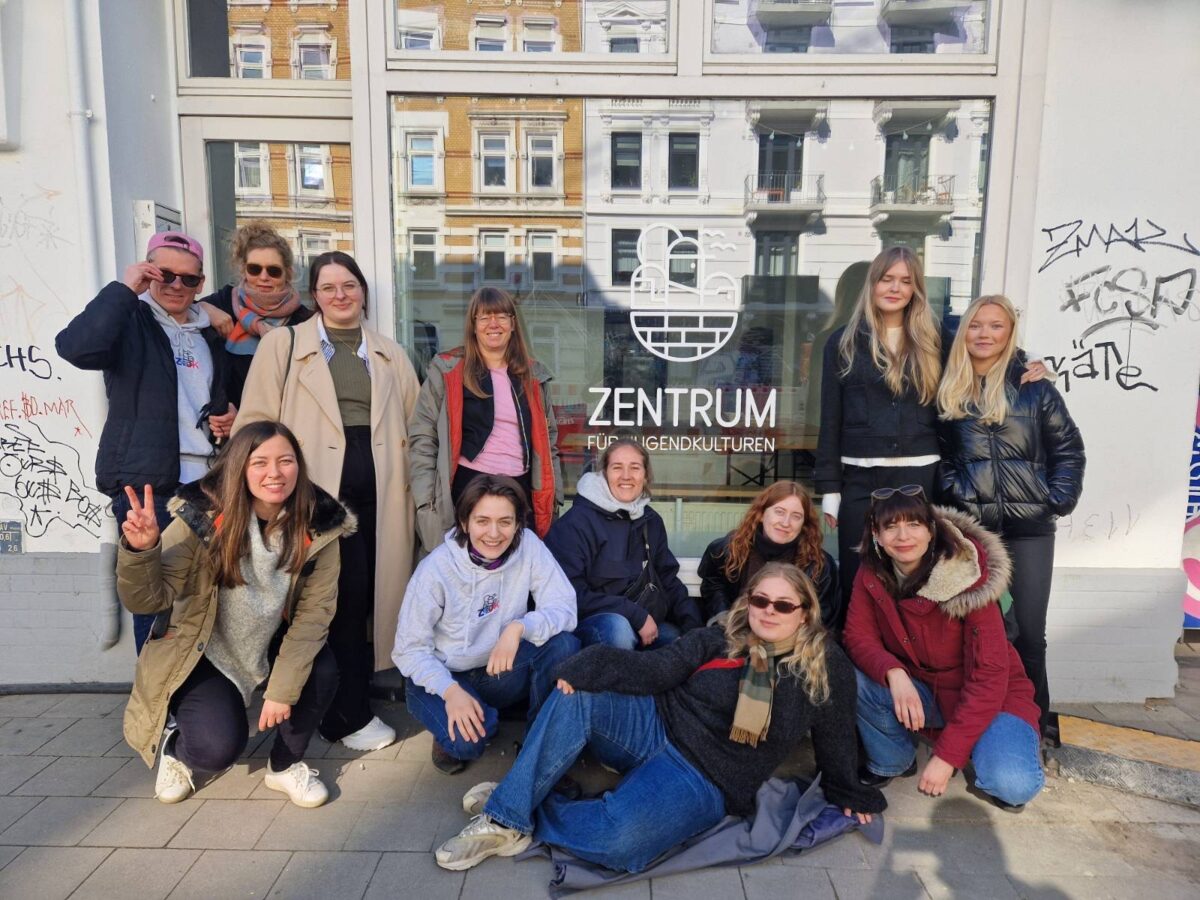
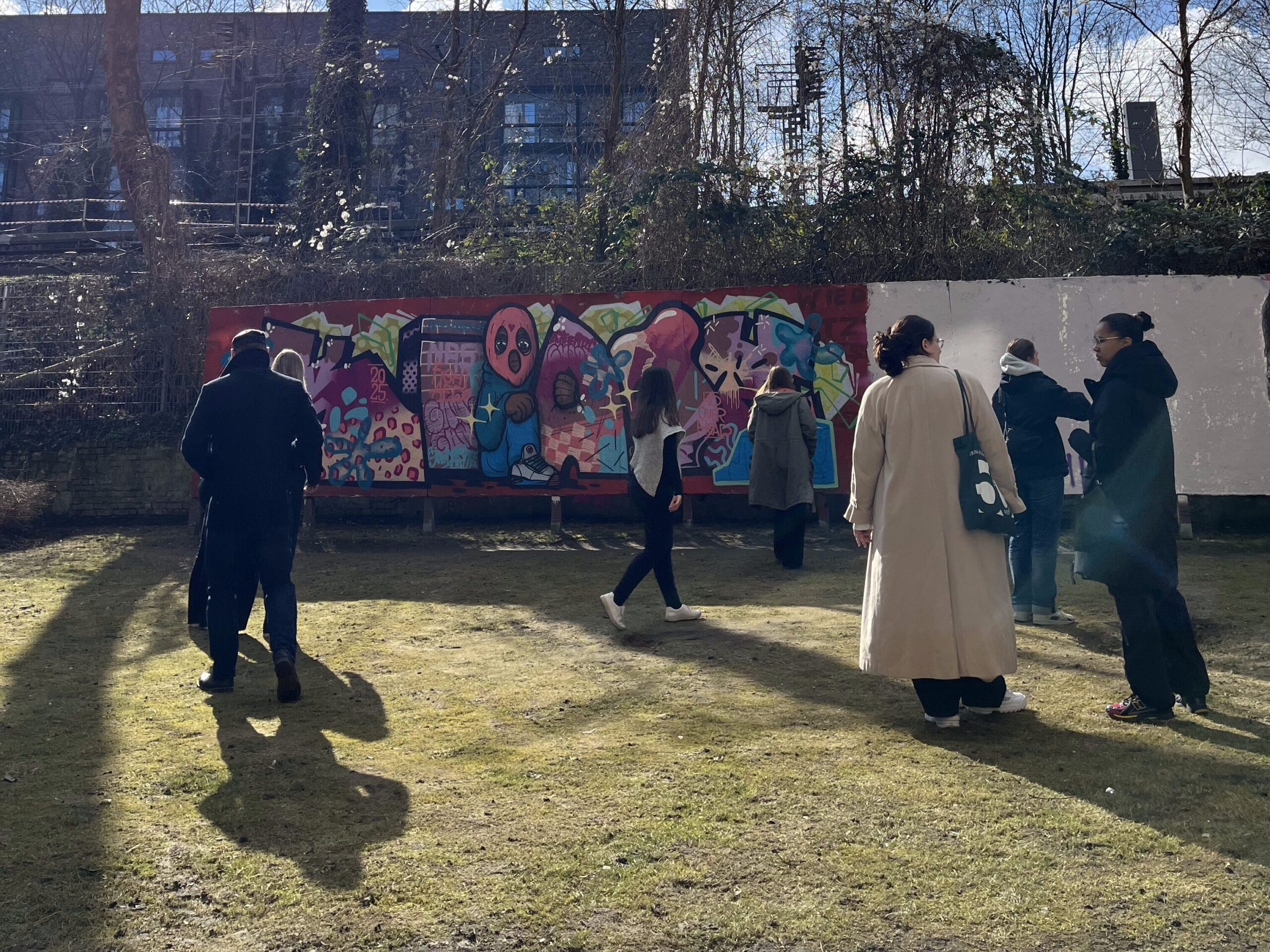
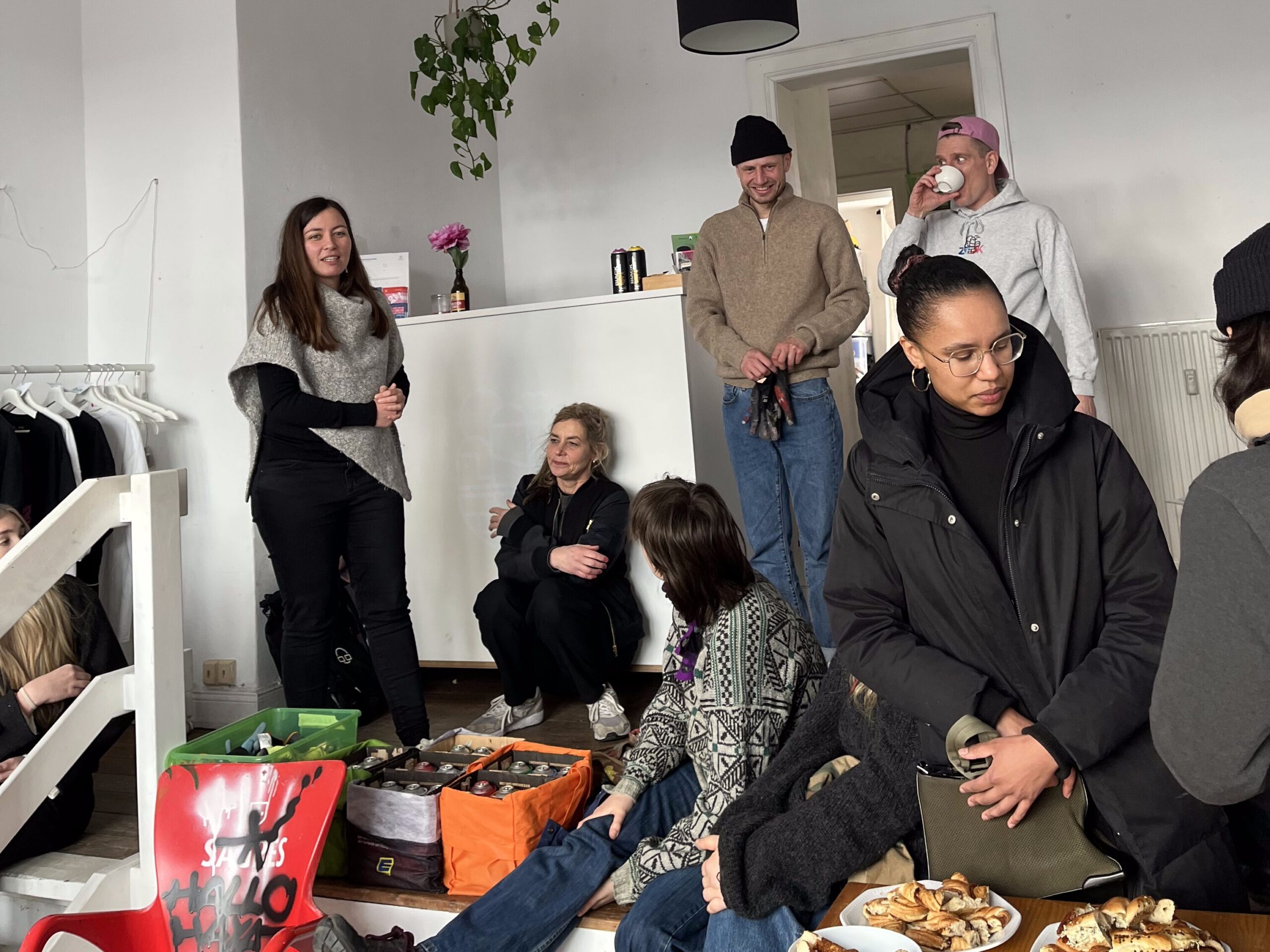
The first stop of the day was at Zentrum für Jugendkulturen (ZFJK – Center for Youth Cultures), where we met Moritz, one of the founders. ZFJK is an independent and self-organised place for young people located in a local shop front they rent from Hamburg’s social housing provider. They provide room for themselves for education outside of school, creativity, activism, and politics. The space is super easily accessible from the street and looks and feels really inviting. In the back, they have a massive outdoor space where they have mounted a temporary wall which is used to develop and spray graffiti motives. Most of their creative workshops are around graffiti art. ZFJK are today grant-independent. They finance rent and materials through a voluntary (and pay-as-you-can) membership scheme and several solidarity parties per year.
12:00 PM
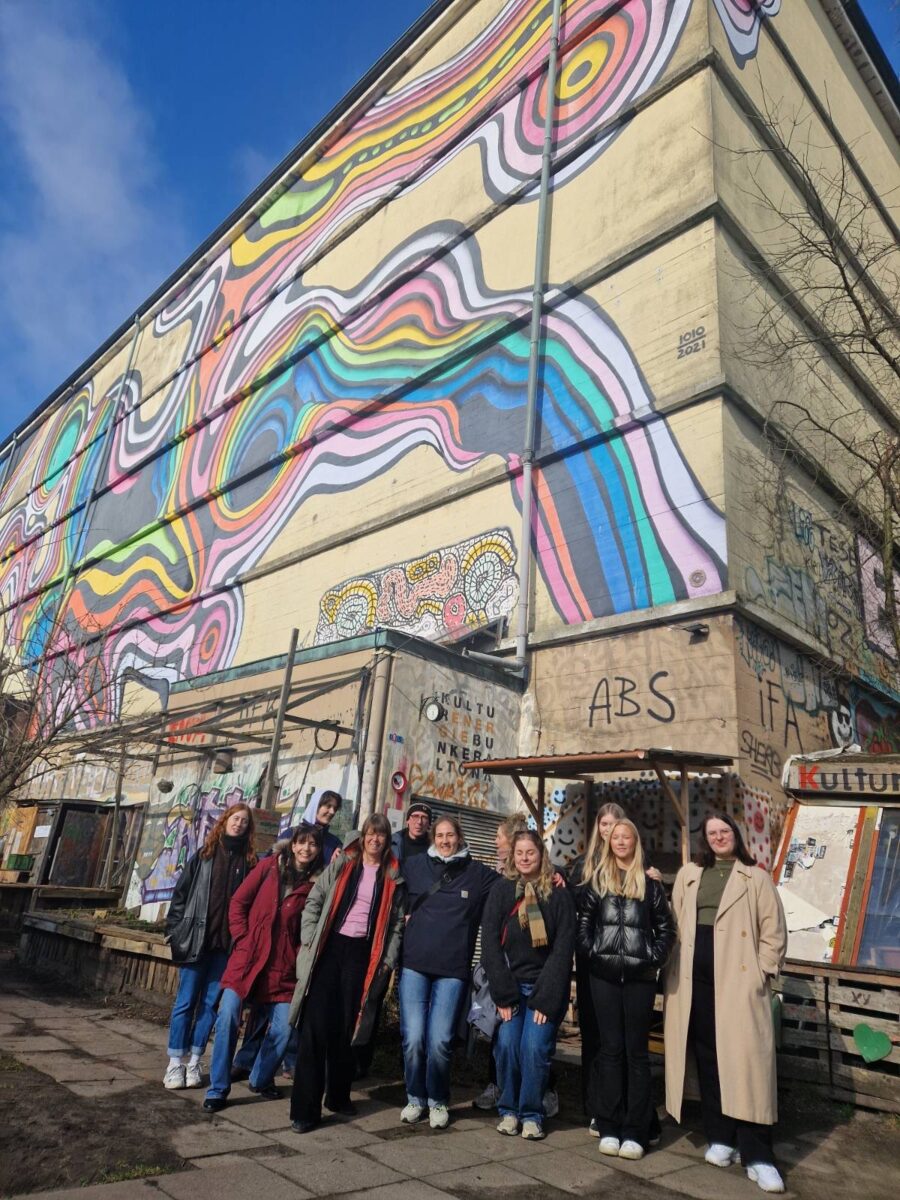
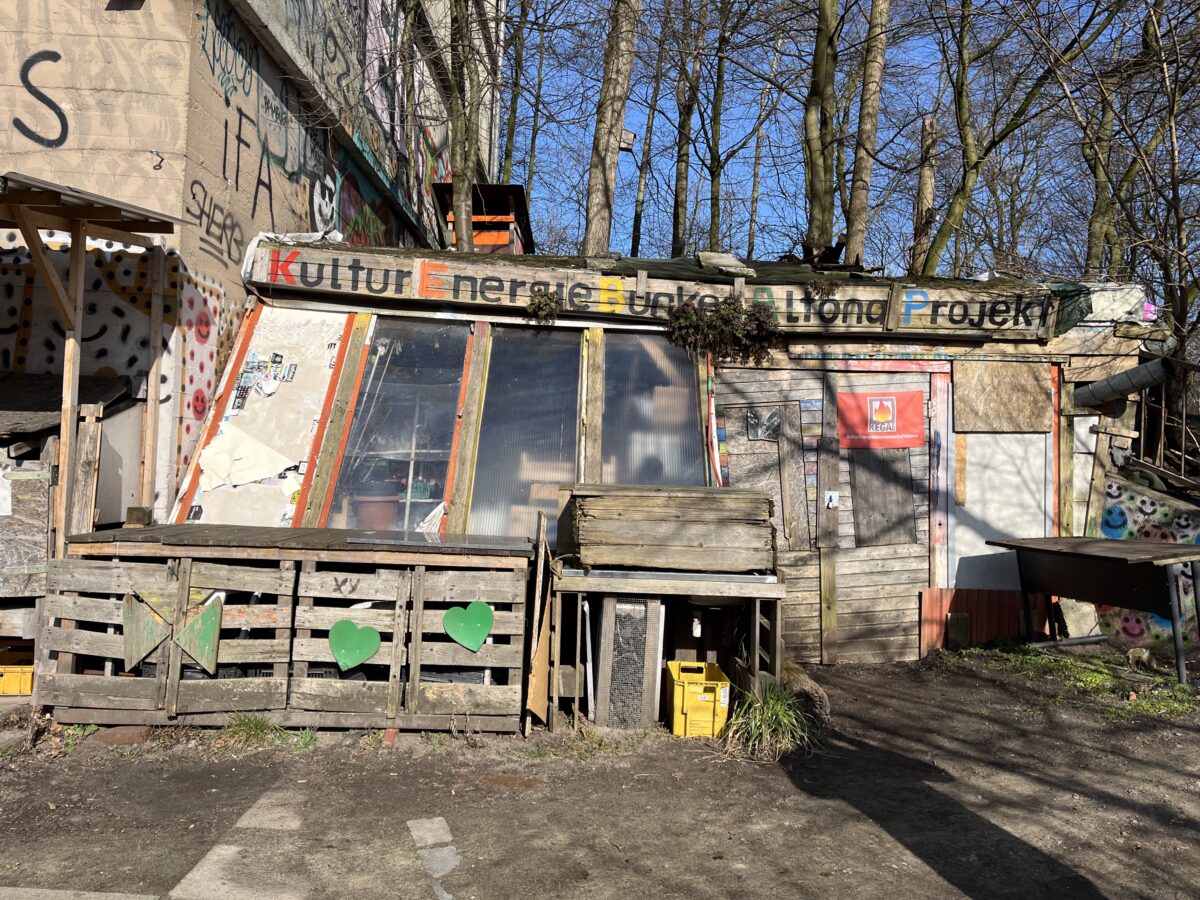
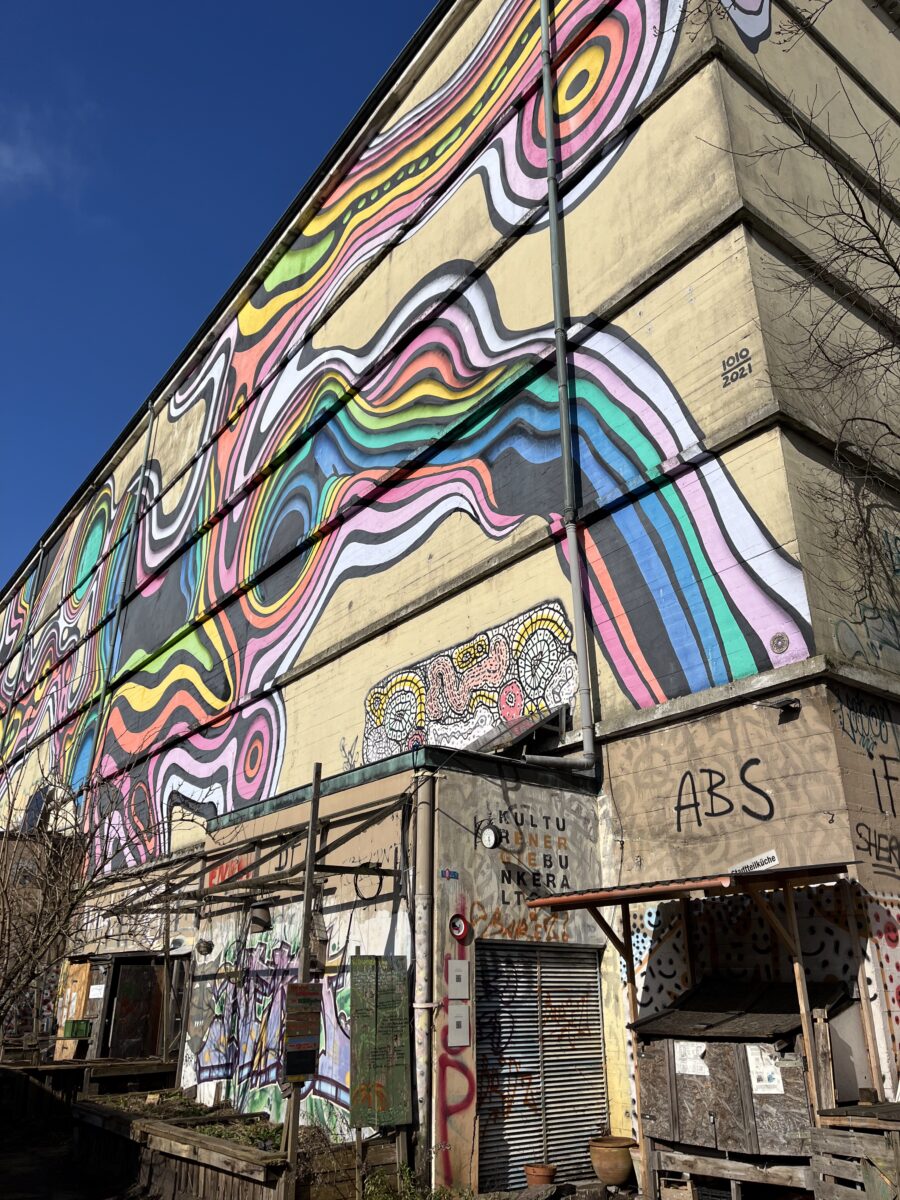
During a walk through Altona, we passed Kebap, a WWII bunker repurposed into the Kultur- und Energiebunker Altona Projekt. One-half will be dedicated to cultural events and activities, while the other half will generate sustainable heat for the district.
12:30 PM
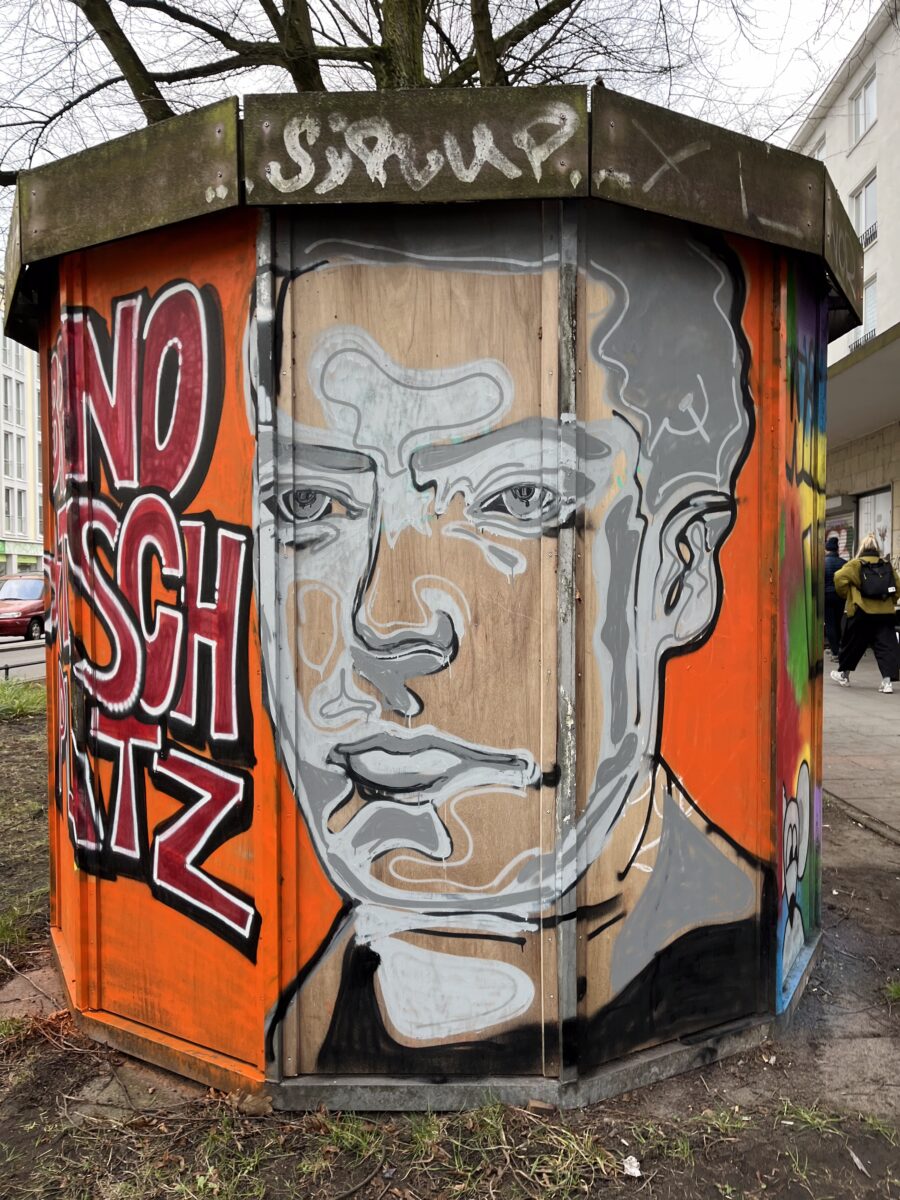
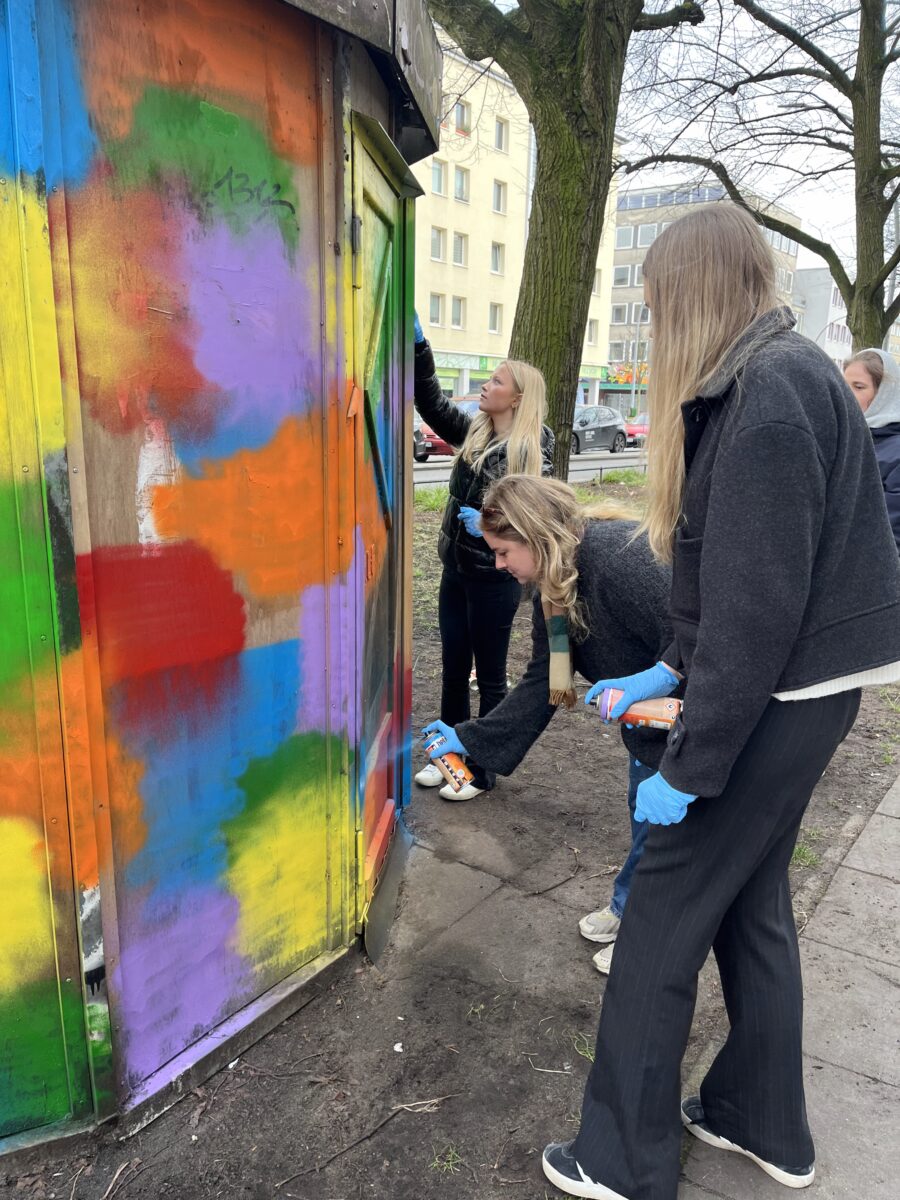
We arrived at Bruno-Tesch-Platz for a graffiti workshop with the Reclaim! Project – a collaboration between ZFJK and docks. The square is named after the communist activist Bruno Tesch, who was trialled and executed by the Nazis in 1933 after his alleged involvement in street fighting (The Altona Bloody Sunday) in 1932. The project explored the story of Bruno Tesch, and we joined in for the final workshop to spray-paint a public bicycle shed with a portrait of Bruno Tesch.
2:30 PM
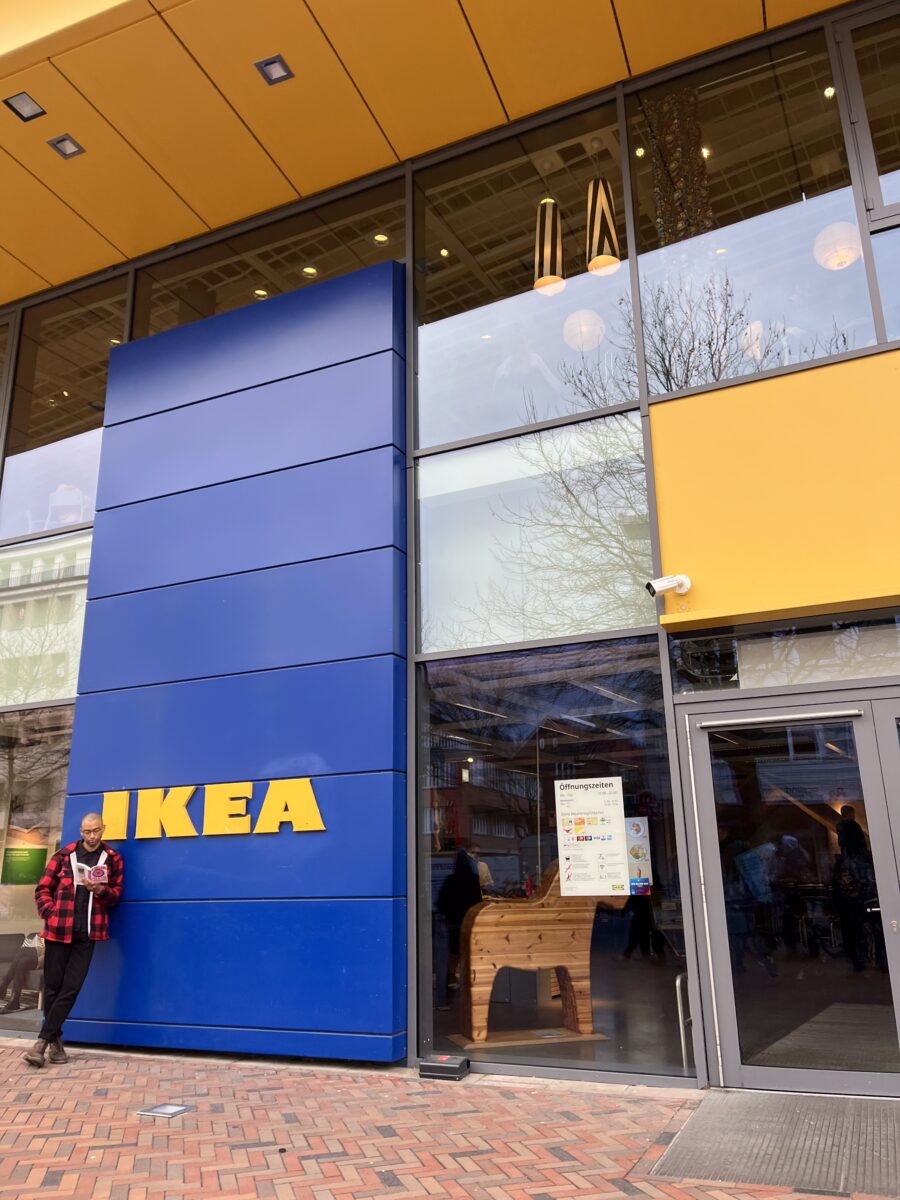
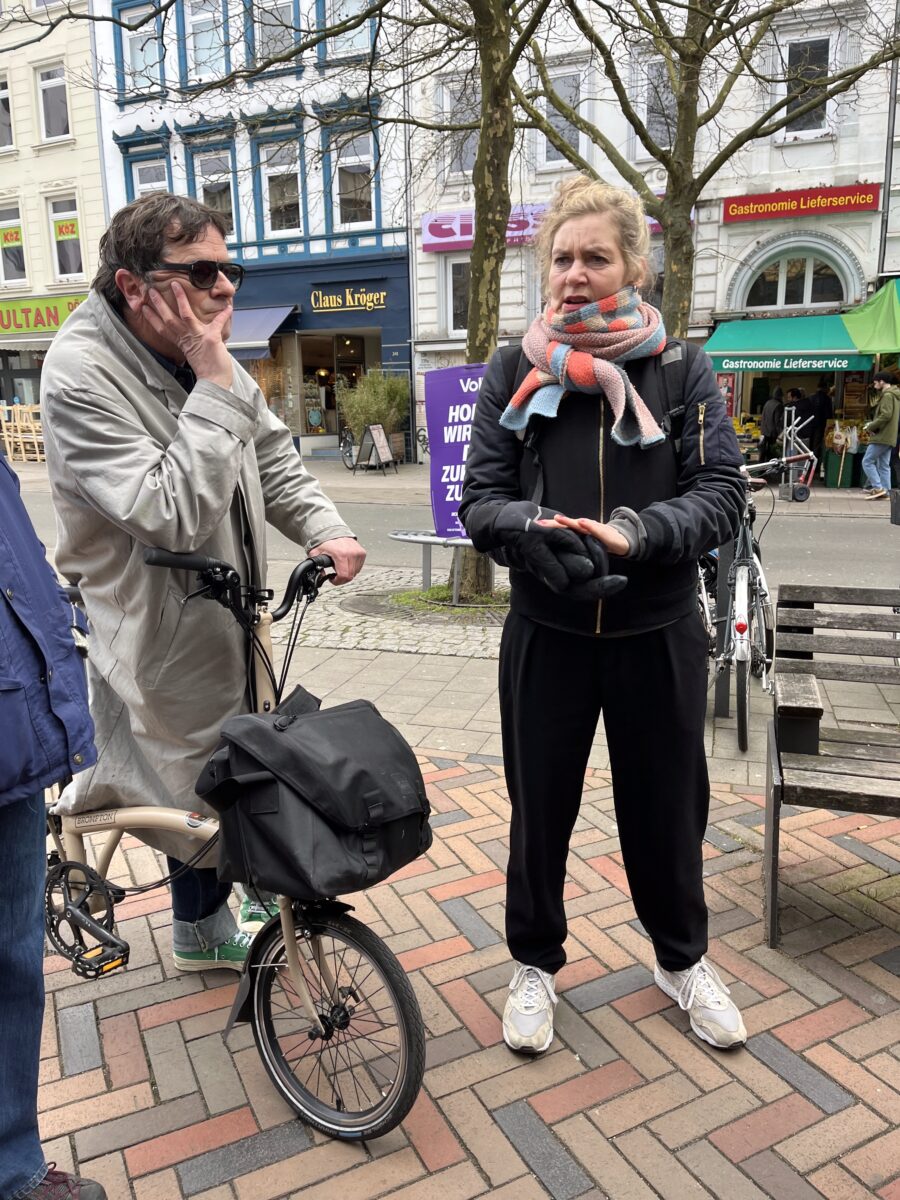
After a delicious lunch at a Turkish restaurant, part of the group met the artist Christoph Schäfer, an artist embedded in Hamburg’s Right to the City movement and the co-founder of initiatives such as Park Fiction and PlanBude. Christoph describes his art as “working on urban everyday life and the production of spaces for and by collective desires”. He calls it ‘parallel urban planning processes’ – the parallel meaning that they are parallel to the official urban planning processes, involving many local people and using the imagination and local knowledge and lived experience to shape the places where we live together.
He and Petra talked about the destruction of the old shopping mall Frappant (remember?) for IKEA’s construction and the campaign “Kill Billy”, which opposed gentrification and ultimately led to the emergence of fux.
3:00 PM
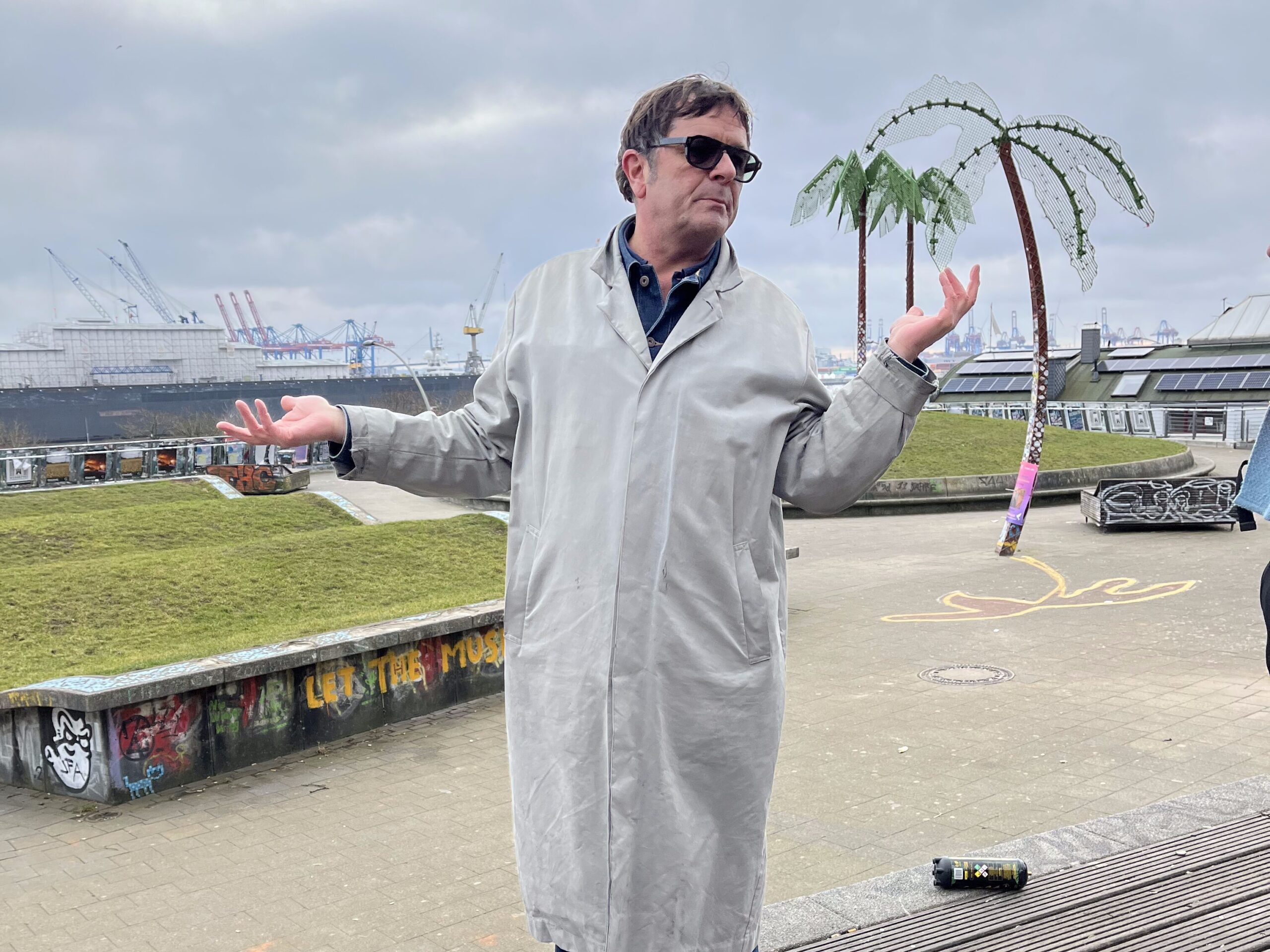
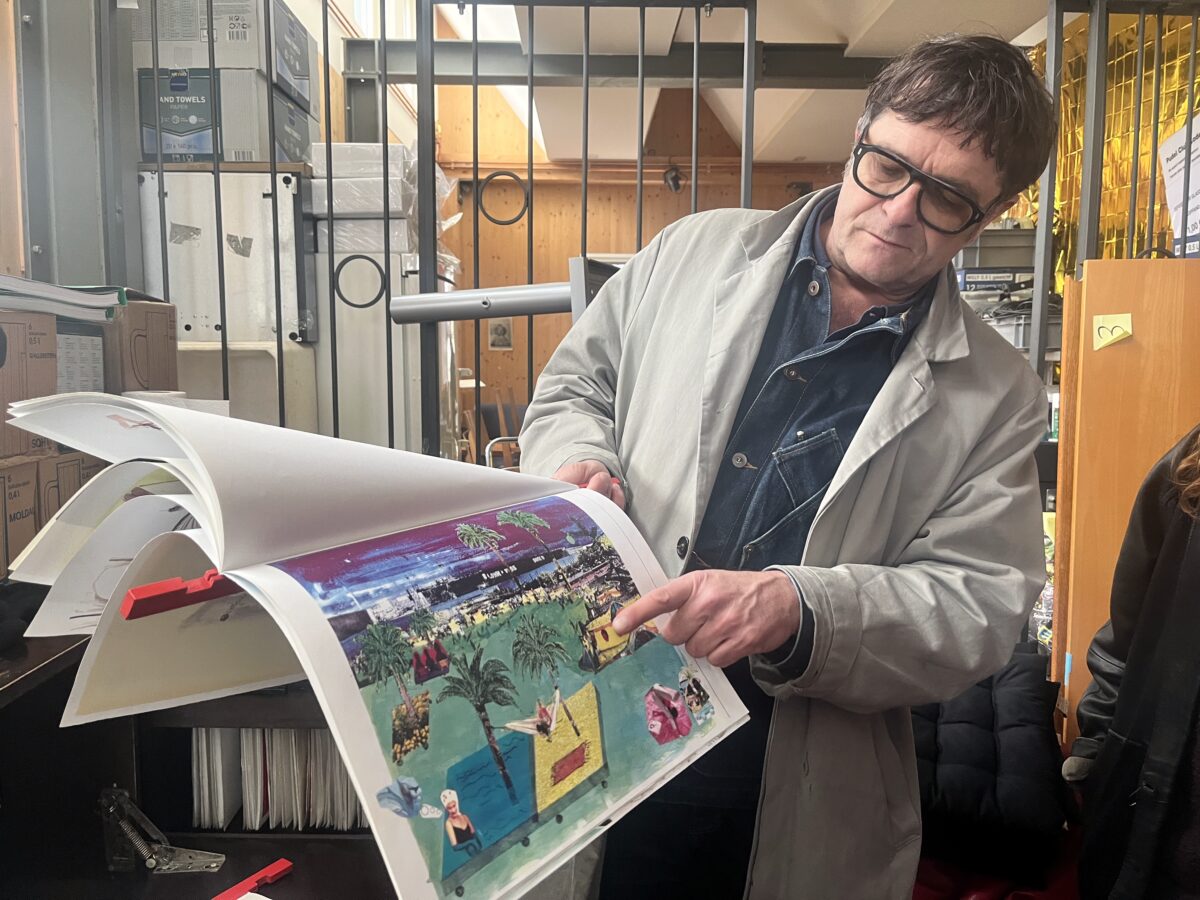
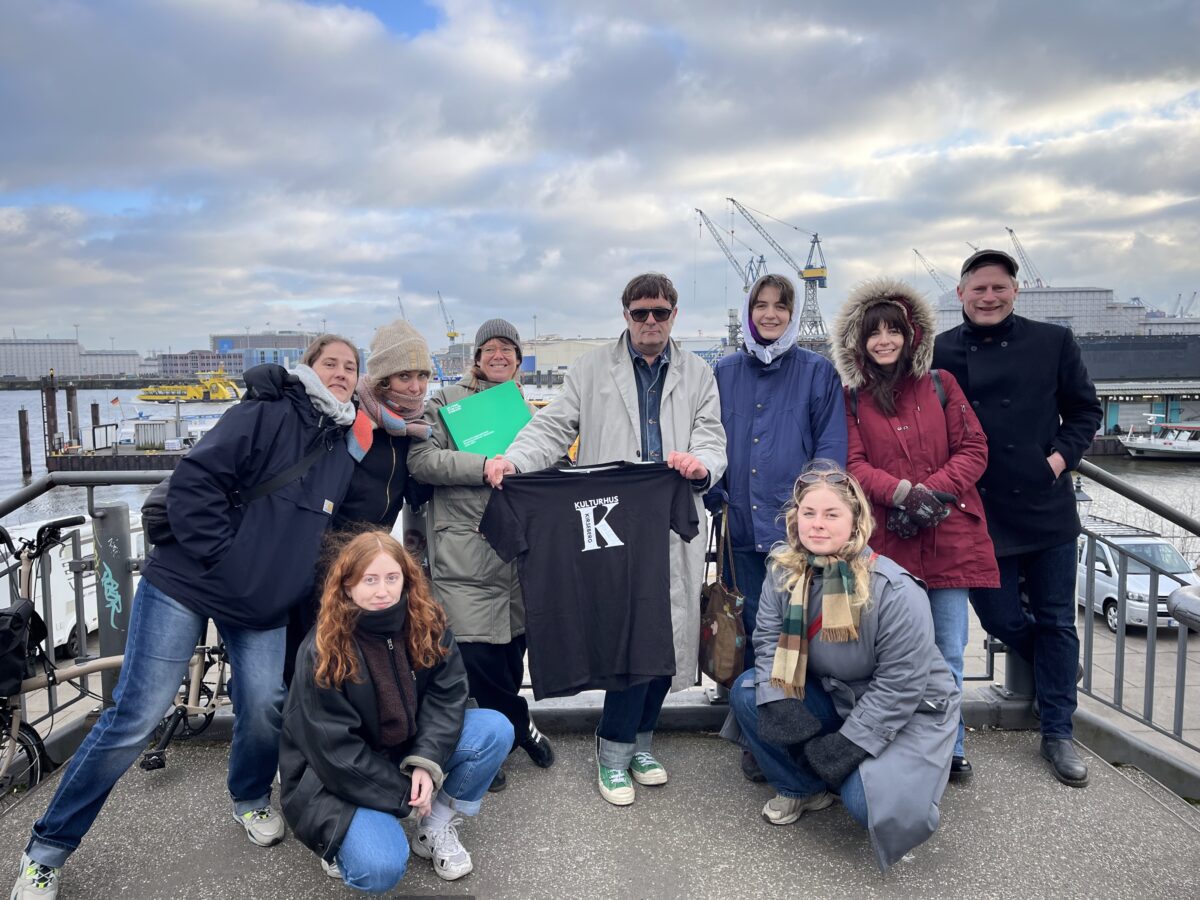
Christoph guided us to Park Fiction, a public park on Hafenstraße, a street known for its history of squatting and collective living. The park was created through community efforts in a mix of clever negotiation with the city and a creative (parallel) planning process that mobilised many people locally to take creative authorship for a piece of land which today is an important meeting space (with palm trees) and viewpoint to watch the big tankers pass the river Elbe!
Christoph took us to see their archive in the infamous Golden Pudel Club. It was amazing to see the objects and games they had made to engage people and the outburst of creativity in people’s drawings and installations that led to the creation of the park.
The act of creating an archive also inspired us, both as a repository of a collective memory and a tool to tell and share stories about how we work. We were reminded of the murals we saw at fux on the first day as a way to tell the story of a building and of a movement. Petra reflected that at fux they should get better at doing their own archive and Backa Kåken members shared their ideas for community archiving as a way to give voice to many storytellers of a collective history.
After reflections with dock europe and Christoph Schäfer, we had free time to explore Hamburg.
March 2, 10:00 AM
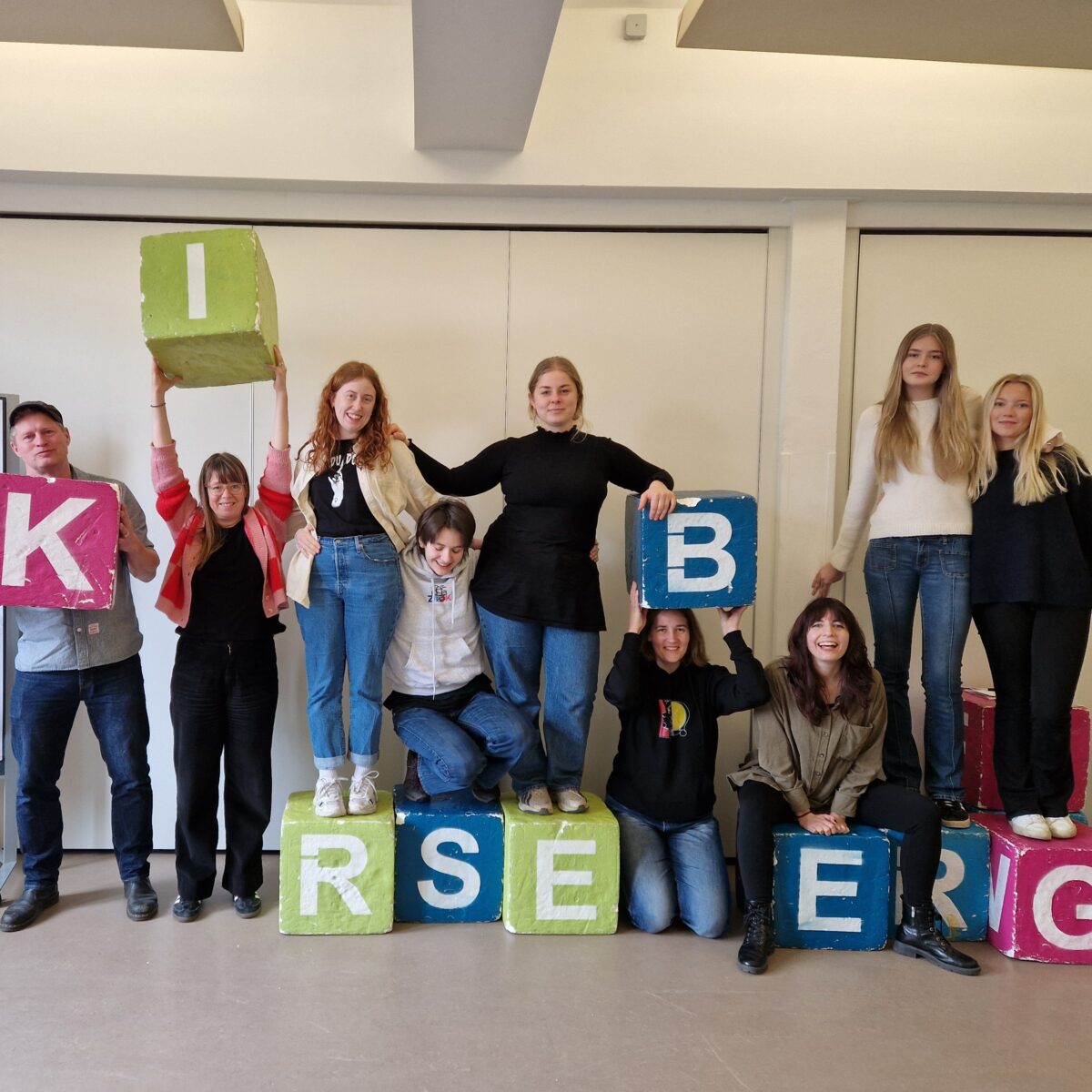
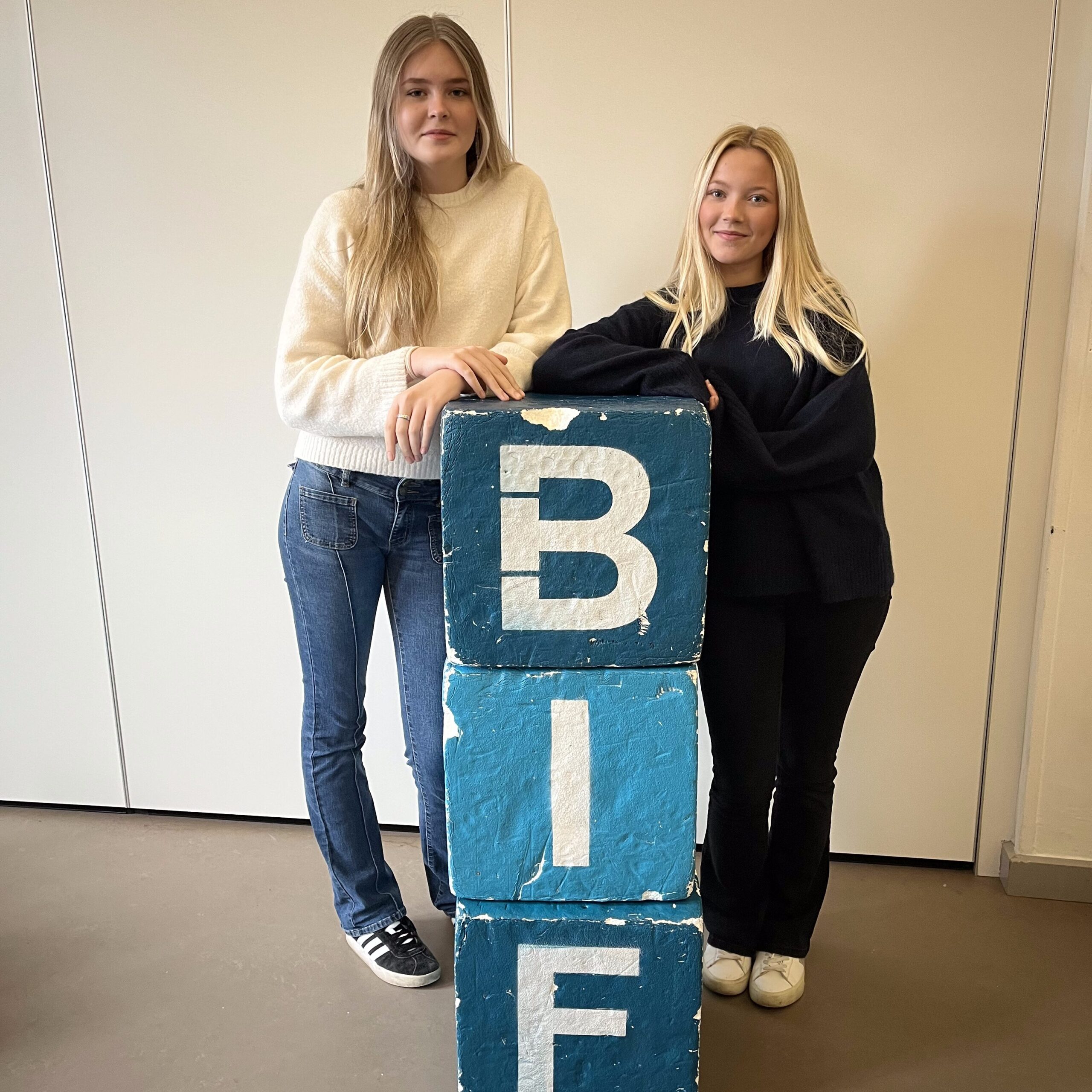
On the final morning, the group gathered for concluding reflections and to explore how these insights can be taken forward into local processes and, of course, into the next meetings in the programme.
Here are some of the key learnings we shared:
The importance of visual and physical processes: We talked about using images and objects and movement to engage with people or creating spaces and events that are inviting and inclusive and allow us to imagine something new together. This counts for the early beginnings, like in planning processes or campaigns or community building, but also in the ‘what we create together’ – we need physical places like fux where we can try things out together and invite others to come in and experience what this kind of ownership and organising can feel/be like.
Humour, fun, playfulness: We loved the palm trees in Park Fiction or the idea of the ‘Raumpatrouille’, a truck with a sound system that pops up in spaces we want to claim or a demonstration that is also a disco.
Hacks and clever design: We love hacks like Nein zur Bezahlkarte or how fux was able to bring together investment from ‘many who have little to enough investment to be a real contender’. Clever and social design is important not only for spaces but also for organisations, alternative systems or finance solutions.
Taking inspiration from differences: We work in different contexts and communities, and we come from quite different organisational traditions. It is a real luxury to explore how others work and exciting to consider how we can translate different approaches into (this case) Kirseberg and Bulltofta IFs and Backa Kåkens process.
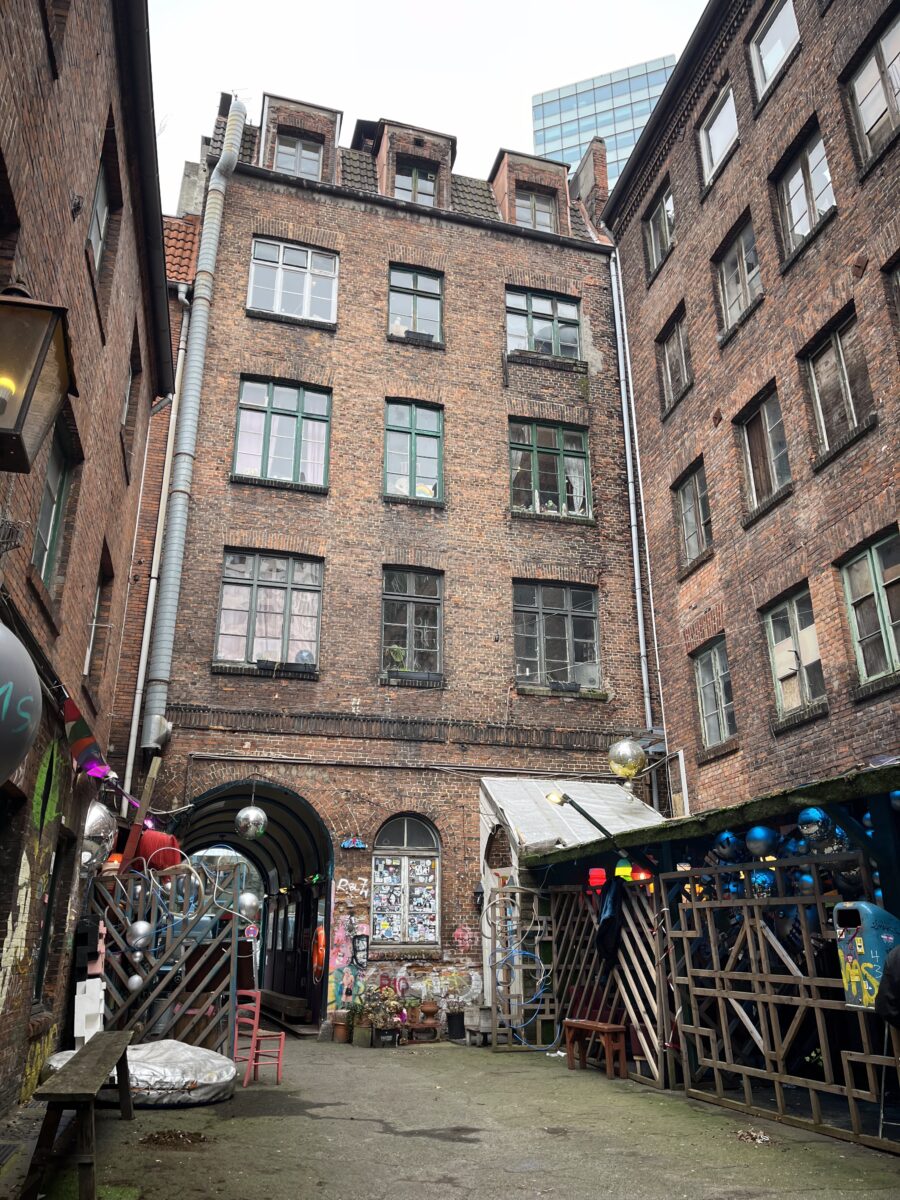
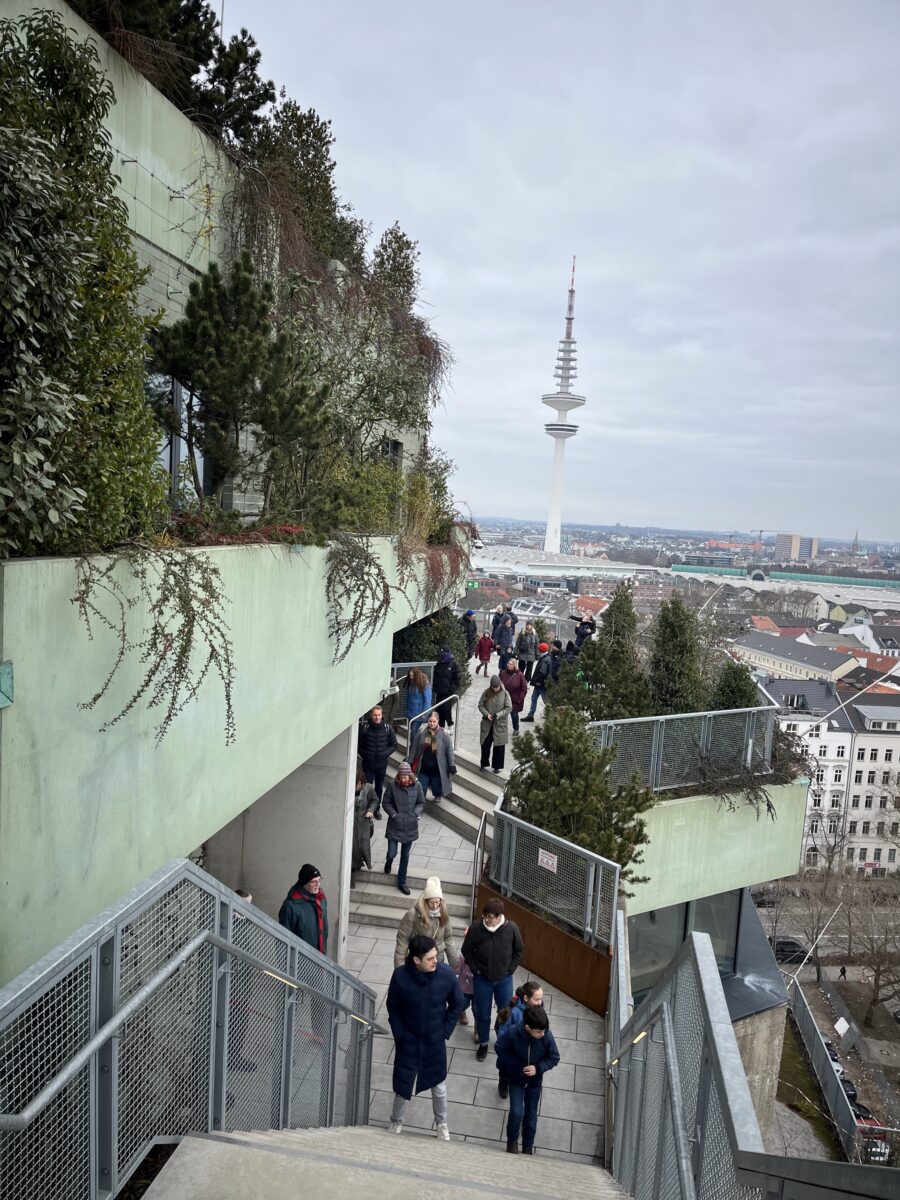
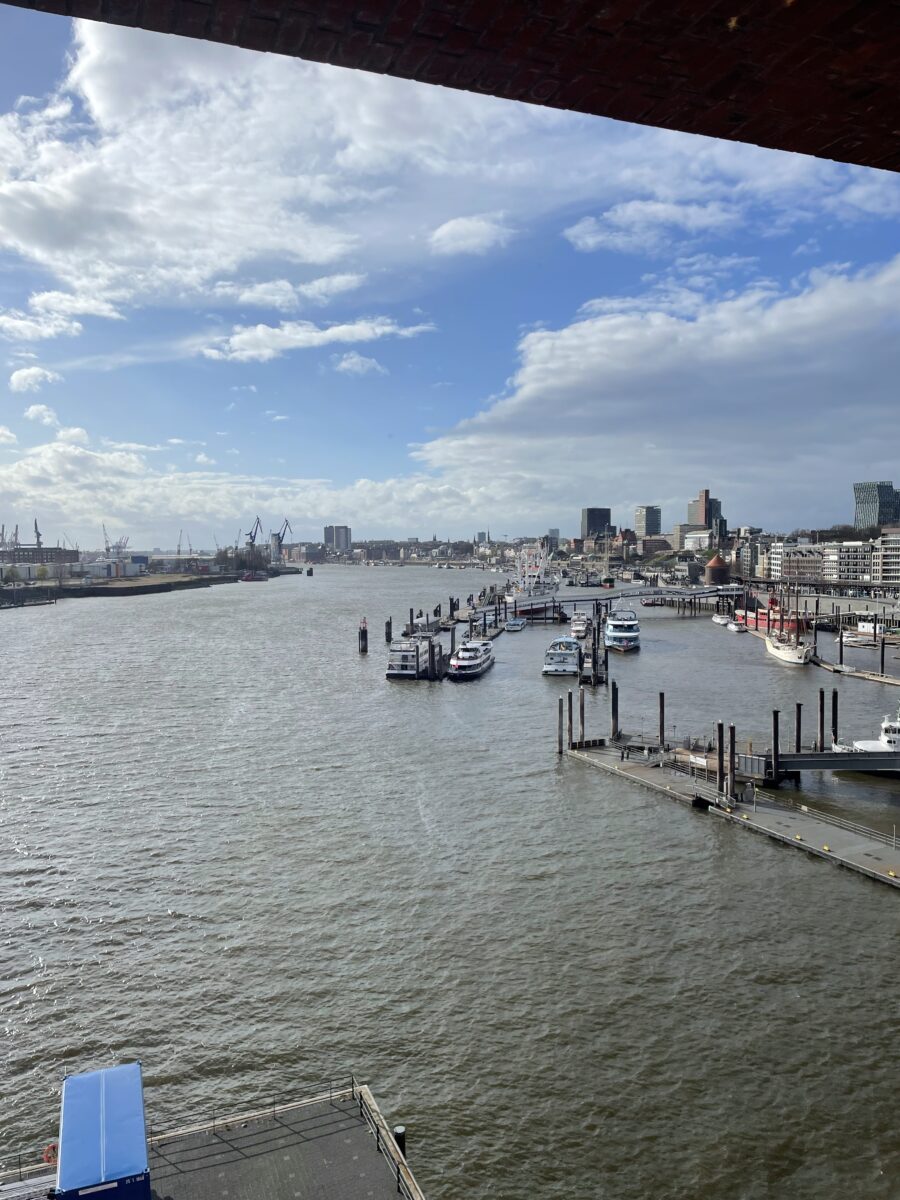
Afterward, some visited the Elbphilharmonie, while others explored St. Pauli Bunker and Gängeviertel.
A fantastic, educational, and inspiring trip! Now, we’re gonna work on the ground in Altona and Kirseberg with our local processes, and in June, a big group of Altona folks is coming to Malmö! Stay tuned on our website and social media for more project updates.

Funded by the European Union. Views and opinions expressed are however those of the authors only and do not necessarily reflect those of the European Union. Neither the European Union nor the granting authority can be held responsible for them.
